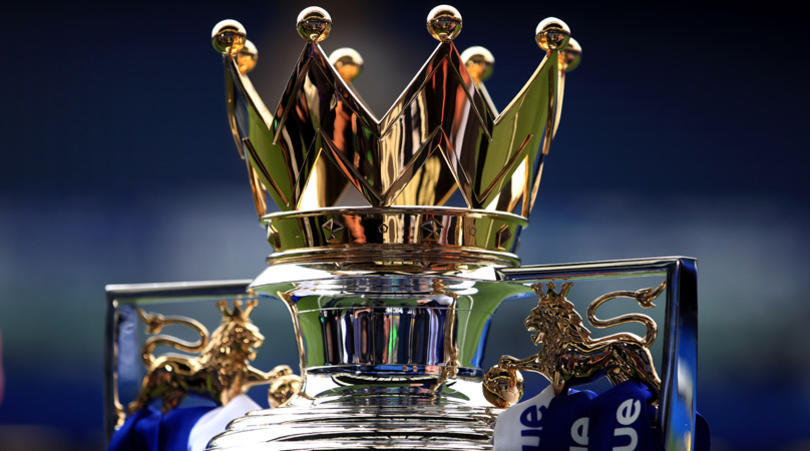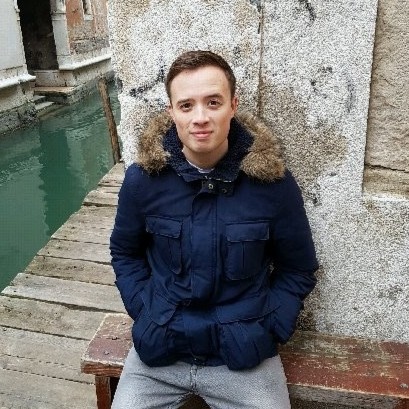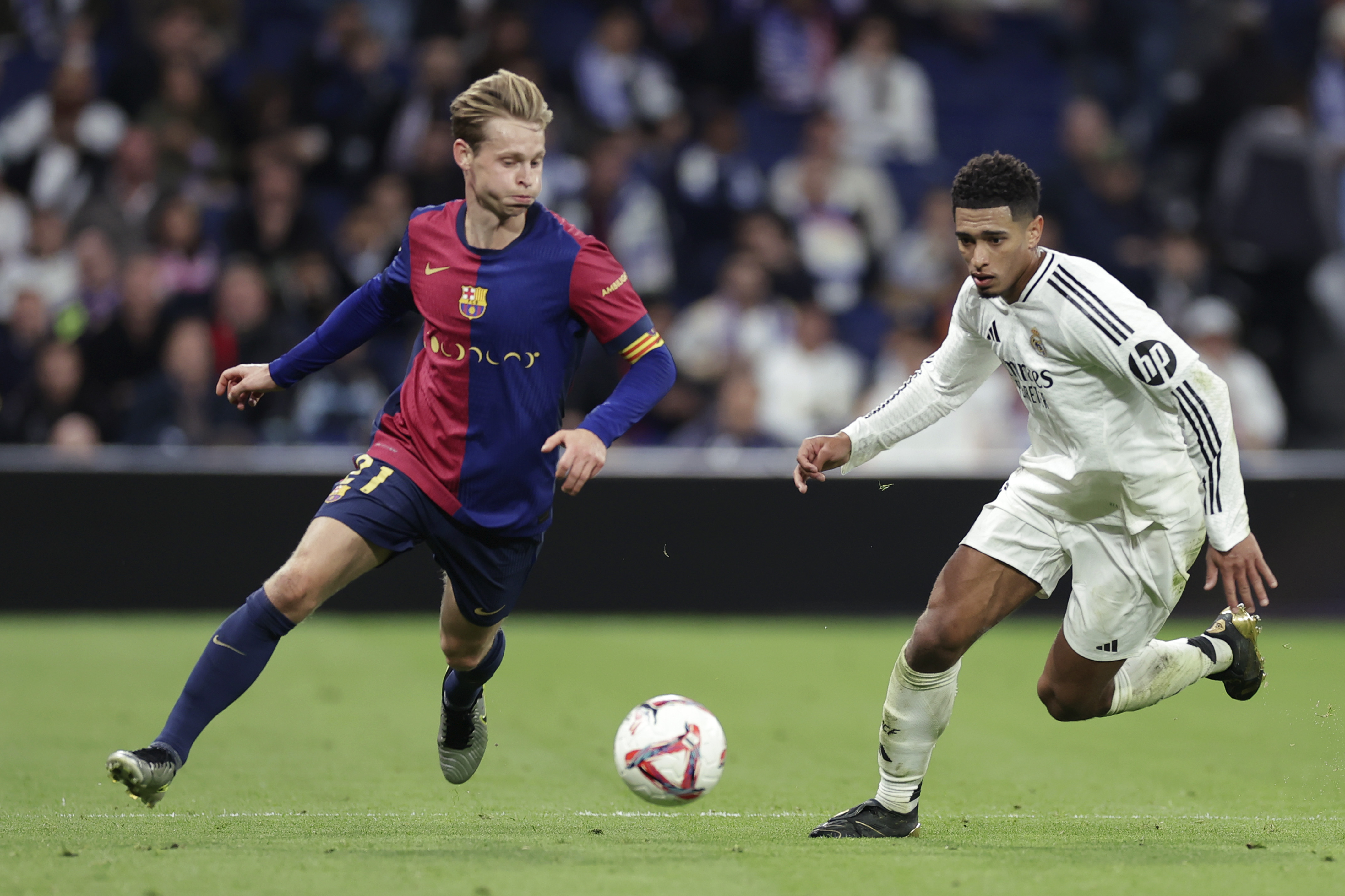FourFourTwo's 50 Best Football Managers in the World 2018
It's back! Our rundown of football's finest gaffers on the planet is here for you to squabble over. Not that you needed the open invite...
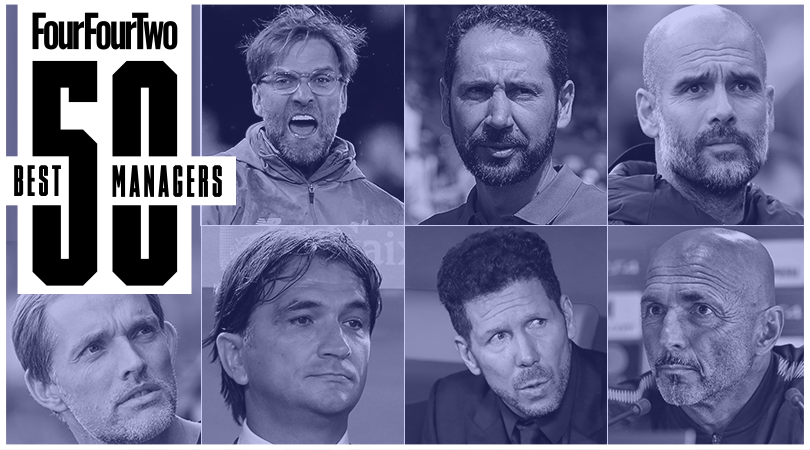
Management is no easy lark. Zinedine Zidane may have made it look that way by strolling into Real Madrid and winning three straight Champions League titles, but for mere mortals it's a constant struggle of man-management, tactical brain-storming, media handling and more.
To rank bosses based on their achievements is not an easy task, then: with so many nuances to take into consideration, there's no straightforward way to define success (and therefore the best football managers). Winning the Champions League is the pinnacle, but you're not going to do that with Burnley – so leading such a club to new heights should be considered appropriately.
While this list leans heavily on achievements over the calendar year in 2018, there's a giant nod to overall class here too – one good (or bad) year should not define a career, after all. Some of the best managers here are well-known old-timers; others are among the most exciting up-and-comers on the planet. So delve in...
50. Brendan Rodgers (Celtic)
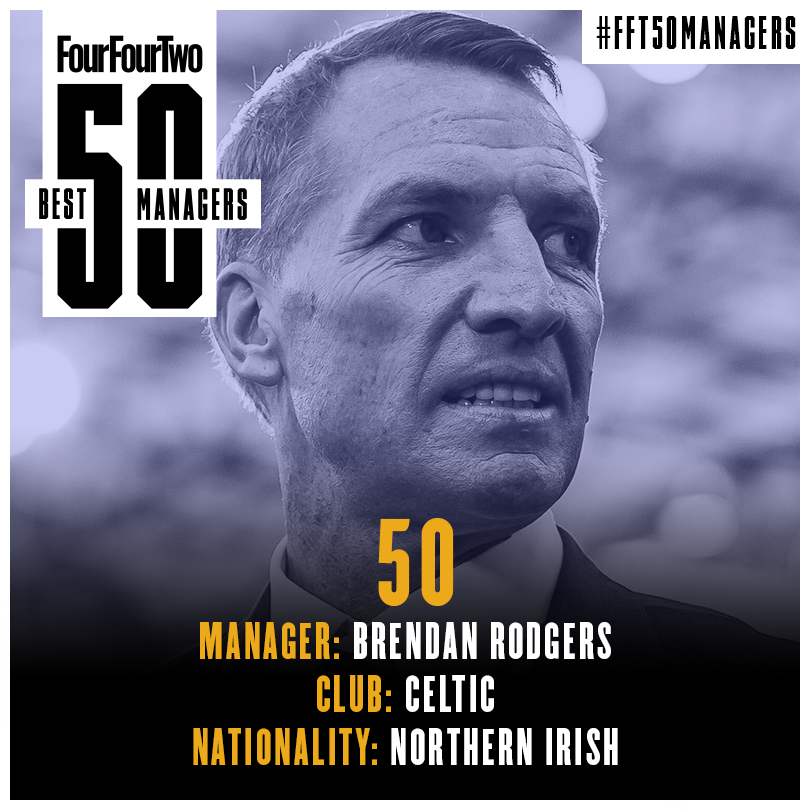
When Mr Positivity said fans should be “alarmed” by the Hoops’ slow start, he was probably trying to inject some urgency into a club where he has made domestic life even easier than usual. Celtic scooped all three Scottish pots again, but in Europe – the real test – they fell two rounds short of the Champions League group stage.
A rare foray into the Europa League’s later stages would restore Rodgers’ Magic Brendan aura, as would winning a historic ‘treble Treble’. – Huw Davies
49. Simone Inzaghi (Lazio)
Get FourFourTwo Newsletter
The best features, fun and footballing quizzes, straight to your inbox every week.
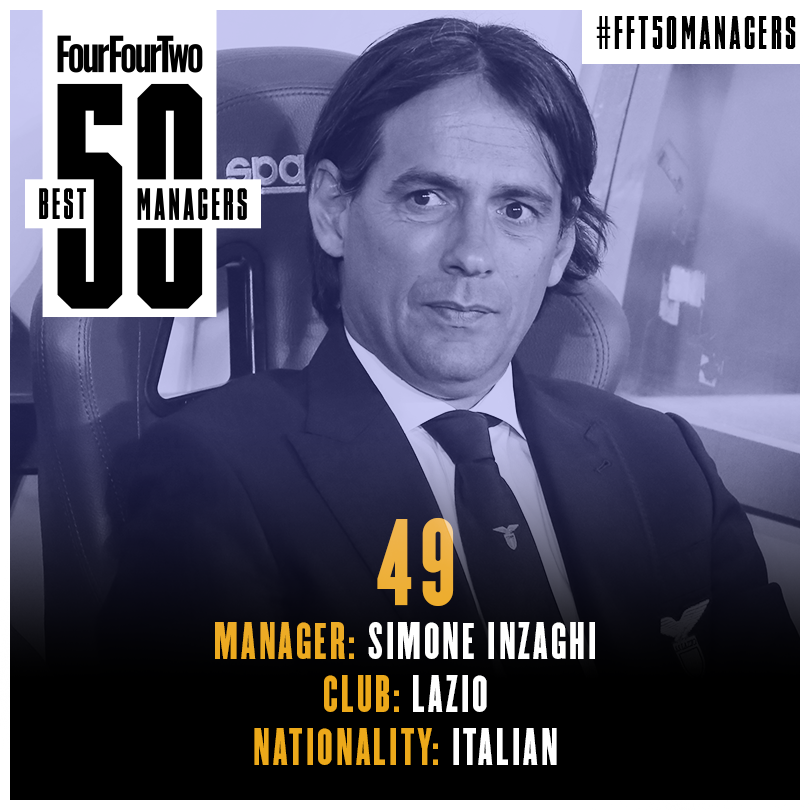
He might not have been anywhere near as talented as his brother Pippo during their playing days, but Inzaghi is certainly overshadowing his sibling in the dugout.
Unfortunate not to reach the Champions League last term, his Lazio side have become a team to be feared in Italy, earning some spectacular results with their exciting play. Tactically astute and particularly good at bringing the best from an attack led experly by Ciro Immobile, it would not be a surprise to see one of Italy’s bigger clubs poach Inzaghi Jnr very soon. – Adam Digby
48. Ricardo Gareca (Peru)
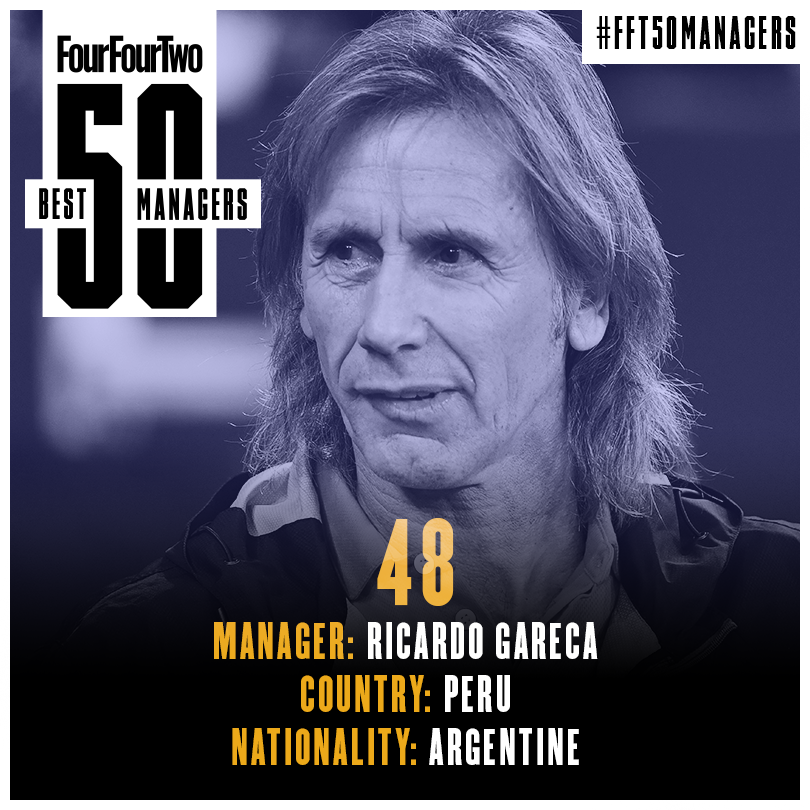
The former Argentina striker – once on Colombian drug lord Pablo Escobar’s hit list – made a name for himself across South America, especially at Velez Sarsfield, but it’s his recent work for Peru which amazes.
Not only did Gareca lead the rather modest squad to their first World Cup finals since 1982, he also implemented a fearless attacking mentality which ultimately lost out in the group stage, but won a lot of friends. Expect further progress under the veteran’s specialist guidance. – Michael Yokhin
47. Sean Dyche (Burnley)
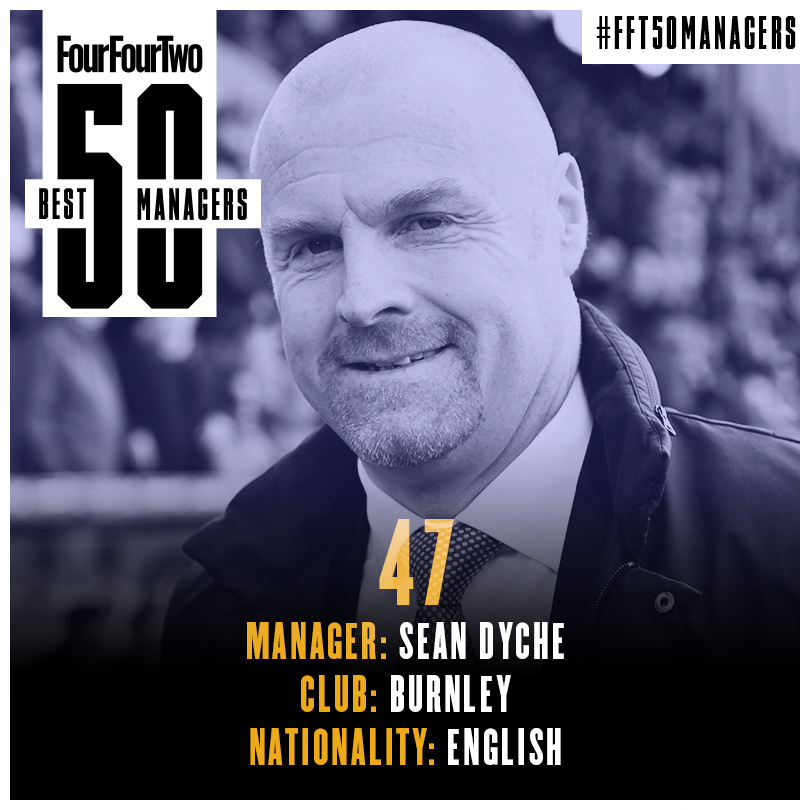
After they’d won plaudits aplenty for qualifying, Burnley’s Europa League campaign passed with all the impact of a tree falling in an empty forest – yet Dyche’s achievement is remarkable.
Although the Clarets deserved more coverage and credit for beating a talented Istanbul Basaksehir team (before losing to Olympiakos), Dyche’s true triumph came in 2017/18 as Burnley defied xG models and a negative goal difference to finish ‘best of the rest’ in seventh with one of the Premier League’s lowest wage bills. – Huw Davies
46. Juan Carlos Osorio (Paraguay)
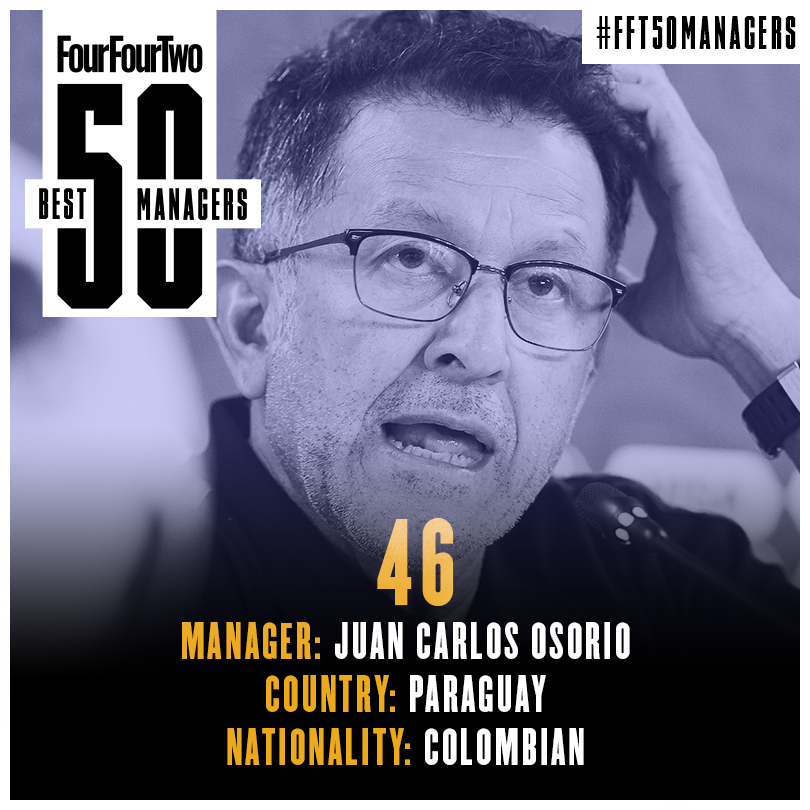
After a nomadic meander around North and South America, Osorio settled in the middle as Mexico coach in 2015, succeeding the volcanic Miguel Herrera. His spell in charge of El Tri was full of highs and lows, featuring a 22-match unbeaten run and frequent touchline combustibility, but the man nicknamed 'The Recreationist' for his for his unorthodox training methods went out in style at this year’s World Cup.
Mexico’s daring and expressive defeat of holders Germany will live long in the memory. Next job, qualify Paraguay for Qatar 2022. – Andy Brassell
45. Ariel Holan (Independiente)
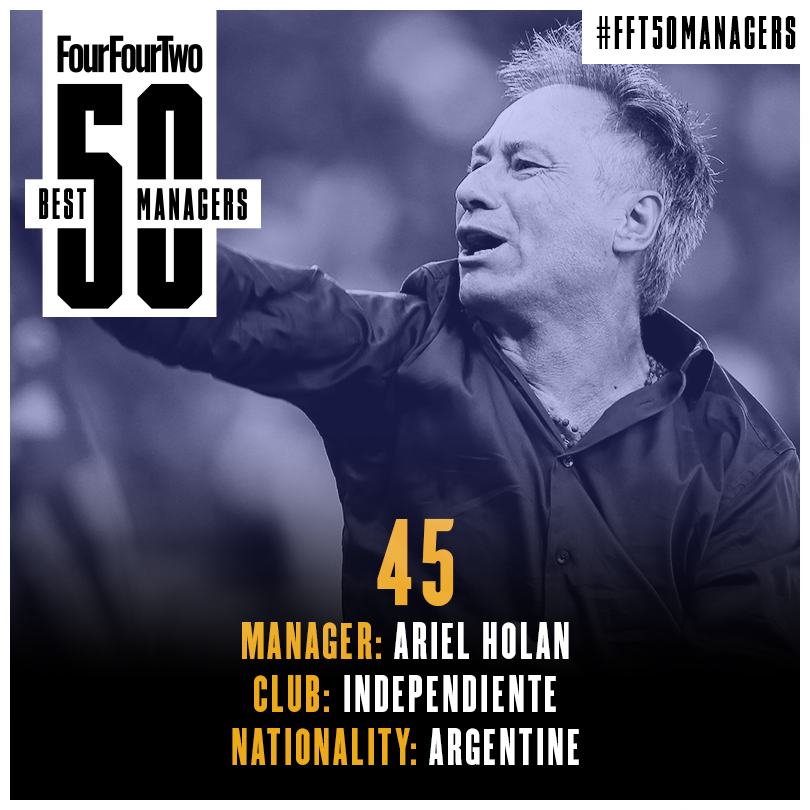
A former field hockey coach who won bronze with Uruguay’s women at the 2003 Pan American Games, Holan is famous for selling his car in order to buy a more modern computer to analyse as much data as possible on his players. Since then, he’s been slowly recovering Independiente’s mystique, displaying an attractive style and leading them to Copa Sudamericana and Suruga Cup titles in the last 12 months.
A progressive and innovative man, Holan almost abandoned the club after a row with the local barra bravas (ultras), but was persuaded to reconsider. El Rojo fans will be glad he did. – Marcus Alves
44. Abel Ferreira (Braga)
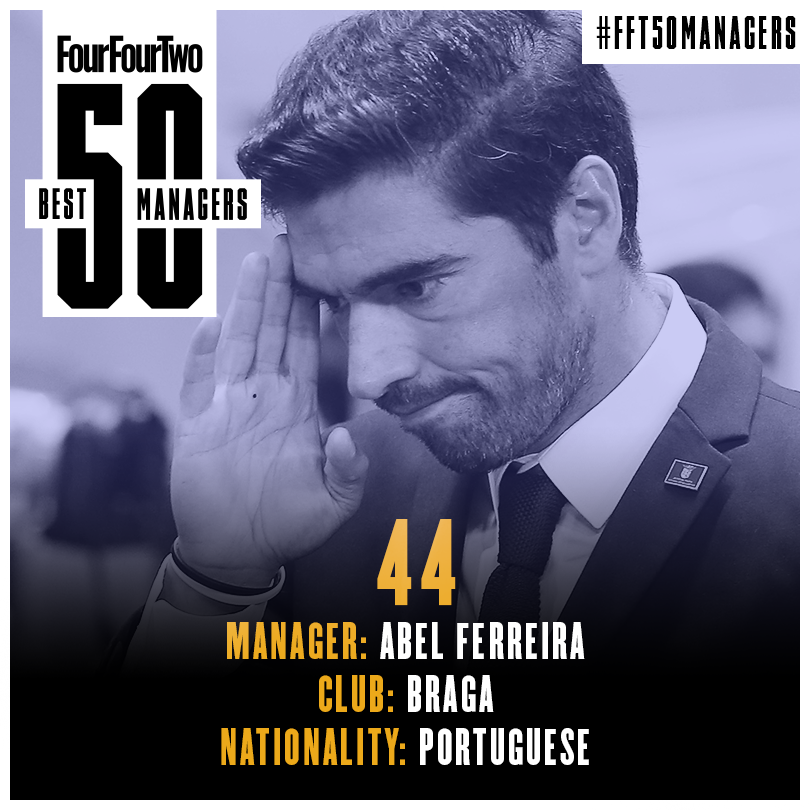
Promoted from Braga's reserves to the first team in April 2017, the former Sporting full-back has fast established himself as one of the most promising young coaches in Europe.
Praised for his tactical versatility, devotion to high tempo and good eye for game-changing substitutions, he finished the 2017/18 season in superb fashion and has started the new term even better, taking a joint-lead with Benfica ahead of Porto and Sporting with seven matches played. – Michael Yokhin
43. Rudi Garcia (Marseille)
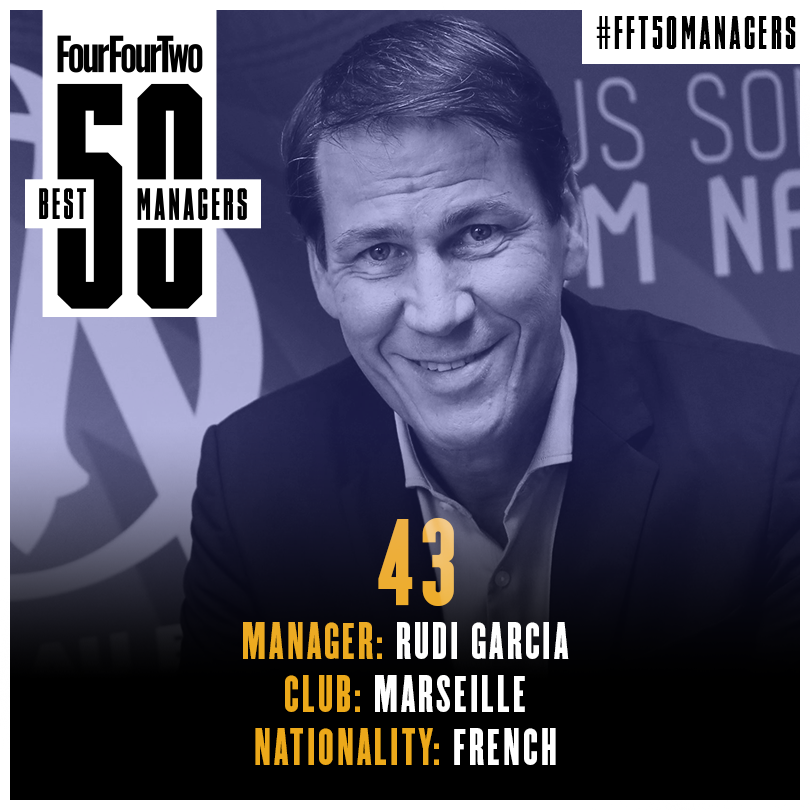
Garcia nearly became only the third coach in history to lead a French club to victory in European competition when Marseille reached the Europa League final last May. Atletico Madrid dashed l’OM’s dreams on the night, but by guiding the team so far, Garcia enhanced his reputation as a smart tactician and master motivator.
When the ex-Roma boss took charge, Marseille were struggling to pick themselves back up after selling several key stars and finishing 13th. After nearly two years in charge under Garcia, they are in a far better state. – James Eastham
42. Quique Setien (Real Betis)
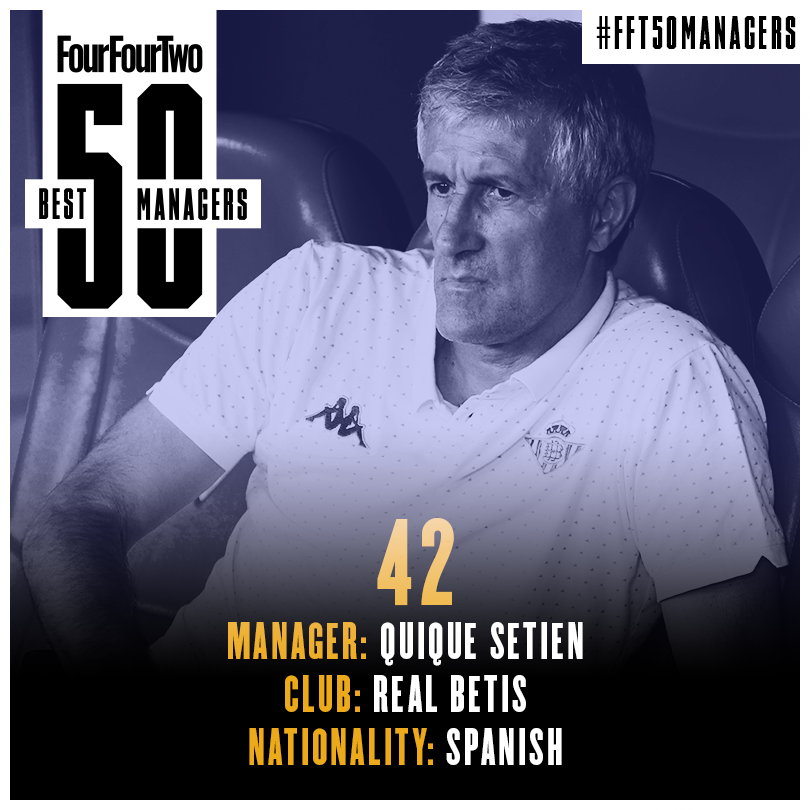
After years of Real Betis being in the shadow of overachieving neighbours Sevilla, Setien was exactly what they needed – a coach with a plan, vision and attitude. His risky, attack-minded football had made Las Palmas one of La Liga’s must-watch sides outside the big two, until a colossal falling-out with the board led to his exit at the end of 2016/17.
He didn’t start well at Betis but the board kept the faith, and he clinched a return to Europe in style at the end of his first season. Throw in Joaquin and there’s a lot to love. – Andy Brassell
41. Eddie Howe (Bournemouth)
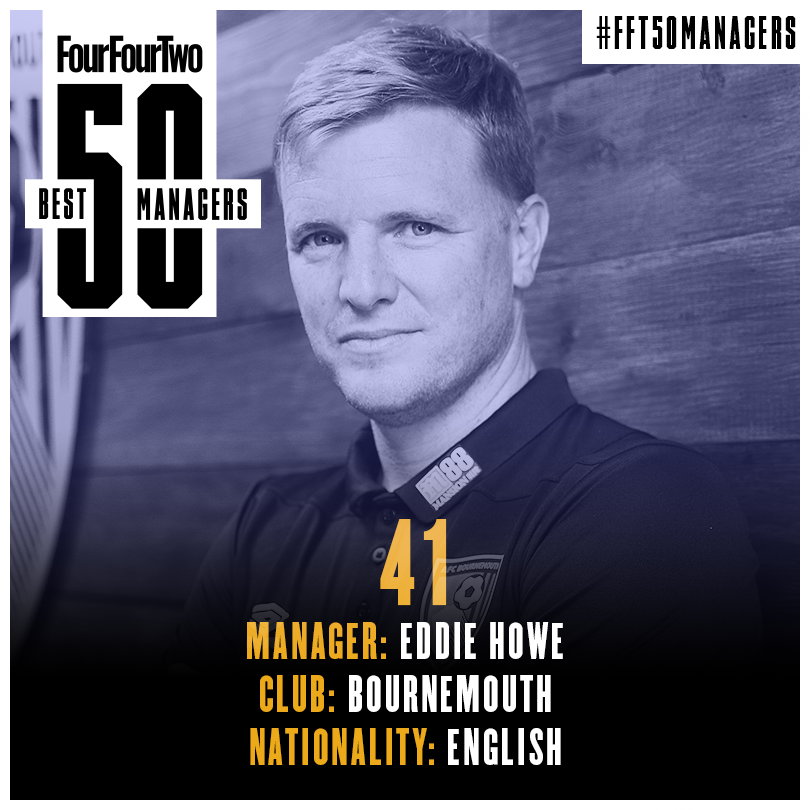
A direct comparison between Bournemouth’s starts in 2017 and 2018 shows a marked improvement; Howe and his players made it through to the second international break unbeaten at home. The picture is of a coach still learning, but for whom that is meant as a compliment: Bournemouth’s defensive standards are far higher than they were a year ago.
Howe’s impressive tactical acumen may not have always won him points, but this is certainly a strategic mind in development. Maybe his real success is shown in his individual players: Callum Wilson’s admirable resurgence after serious injury; the development of Ryan Fraser into a genuine difference-maker at Premier League level; and the continued high performances of Steve Cook and Charlie Daniels. Respectfully, all have been beyond expectation.
He arrested a serious slump last winter, and out of that crisis has grown an altogether smarter side – and probably also a more complete head coach. – Seb Stafford-Bloor
50-41 • 40-31 • 30-21 • 20-11 • 10-1
40. Gareth Southgate (England)
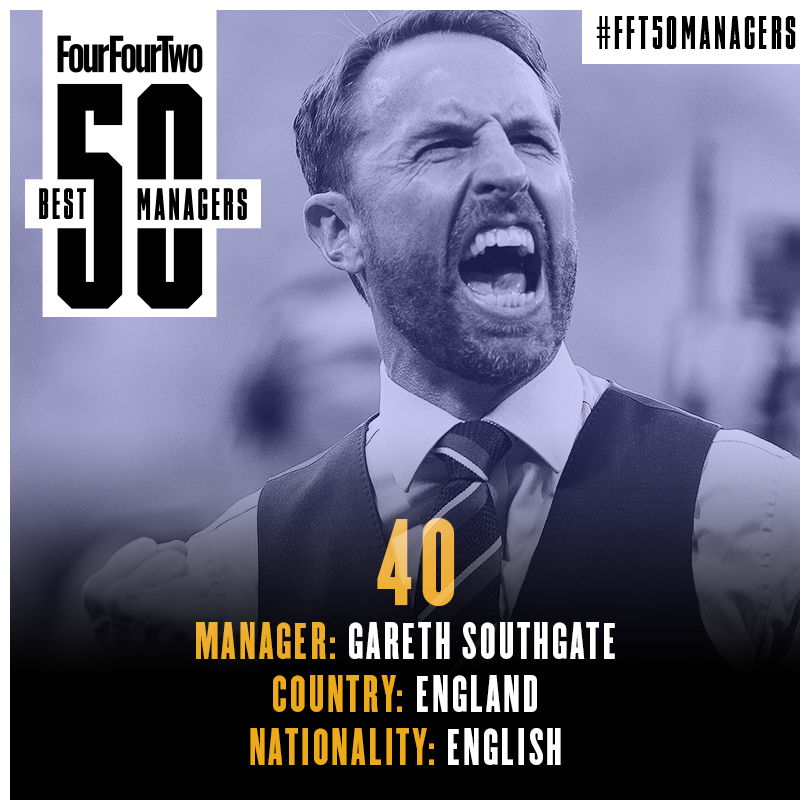
Wasn’t that great? To feel engaged with the England team again is a fine feeling and Southgate has been one of the key architects of that bond. A World Cup semi-final was also a fine return from a tournament where almost nothing was expected, and the FA have been quite correct with their swift offer of a new contract.
There are caveats, though. Southgate spent 2018 proving that he could manage a squad and foster an appropriate environment, but there were certainly lessons to take home from Russia.
Long term, he will be judged on whether he can apply that earned knowledge and develop true control of games. – Seb Stafford-Bloor
39. Luciano Spalletti (Inter)
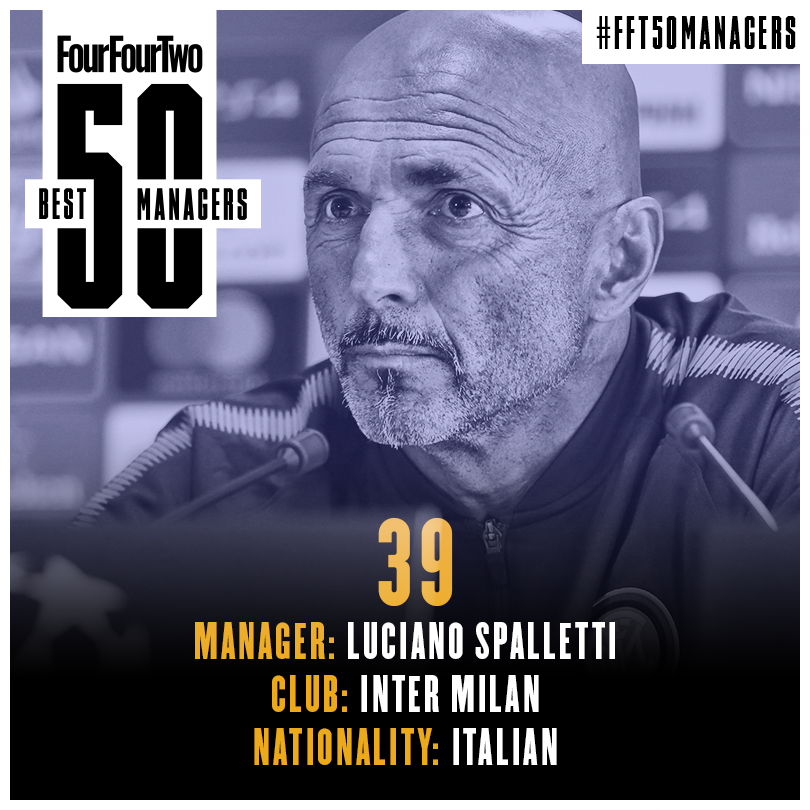
Lauded for his cavalier attacking style at Roma, Spalletti moved to Inter in the summer of 2017 and promptly returned the Milanese giants to the Champions League after a six-year absence.
His team – much like his former charges in the Eternal City – continues to suffer surprising losses at unexpected intervals, but with a talent-laden squad at his disposal he is slowly rebuilding the Nerazzurri into a potent Serie A force. – Adam Digby
38. Stefano Pioli (Fiorentina)
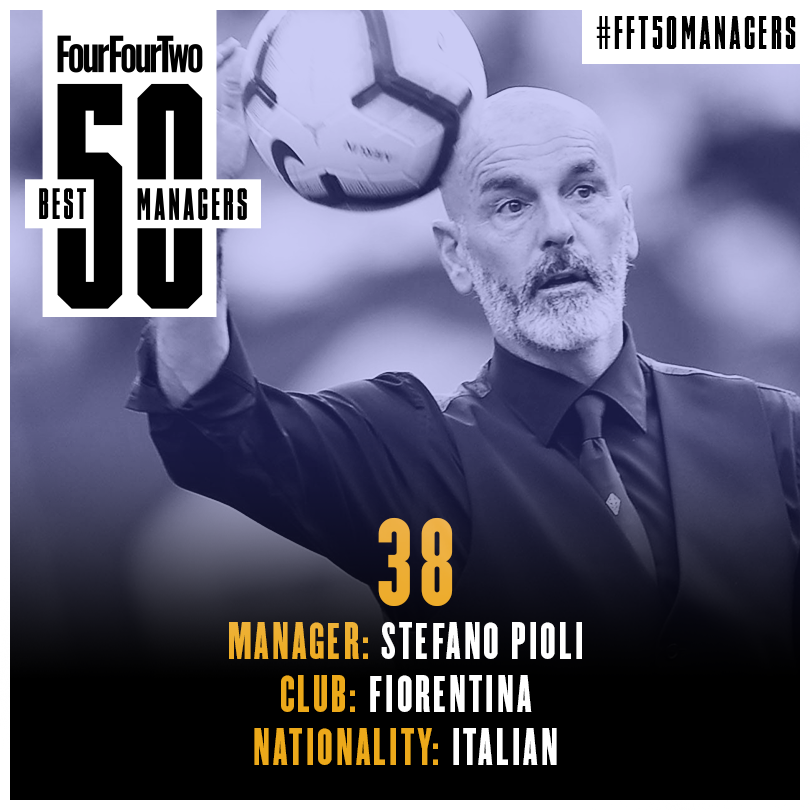
Not only has Pioli moulded an entirely new Fiorentina side – the youngest in Europe on average age – into a vibrant, attacking outfit, but he demonstrates all the personal attributes that his team have so sorely needed.
This was never more evident following the shocking death of his captain Davide Astori last March, with the coach personally breaking the tragic news to each member of his team. Now the Viola go again for Europe under Pioli, united in their goals and with a renewed positive outlook. – Adam Digby
37. Abdullah Avci (Istanbul Basaksehir)
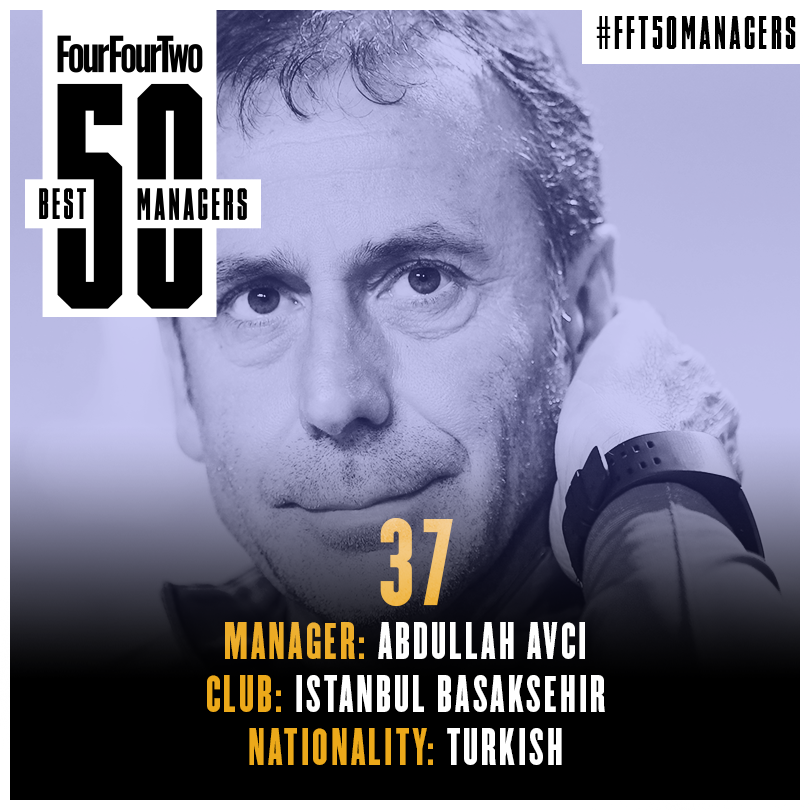
Fatih Terim is considered Turkey's greatest coach, but even compared to him Avci is respected as the country's greatest tactical mind. Working far from the spotlight at Istanbul Basaksehir, a club almost without fans, he has built a magnificent team that threatens the hegemony of big three Fenerbahce, Galatasaray and Besiktas.
Basaksehir finished second in 2017, third in 2018, and will fight for the Super Lig title this season as well, mostly thanks to the exceptional work of the long-term plan-loving coach. – Michael Yokhin
36. Adi Hutter (Eintracht Frankfurt)
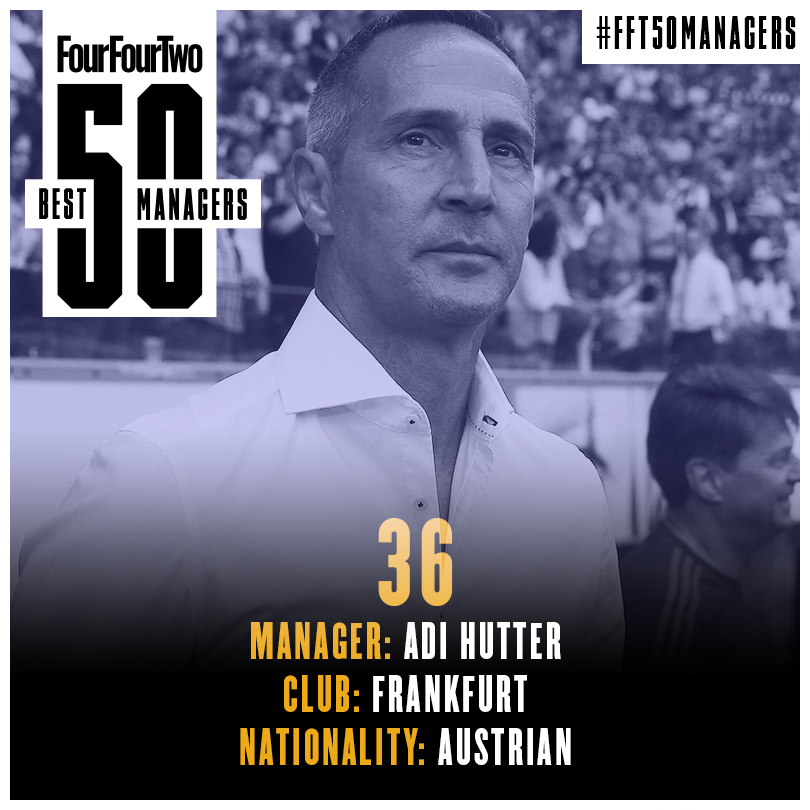
Trophyless since 1987, Young Boys were Swiss football’s eternal losers, often falling apart when it mattered most. Then Hutter came along, bringing with him the self-belief to finally ended the Bern club’s curse and win the Super League ahead of Basel this summer.
The Austrian loves quick transitions, somewhat reminiscent of Jurgen Klopp, so it’s only natural that he moved to the Bundesliga for the new season, taking over at ambitious German Cup winners Eintracht Frankfurt. – Michael Yokhin
35. Marco Giampaolo (Sampdoria)
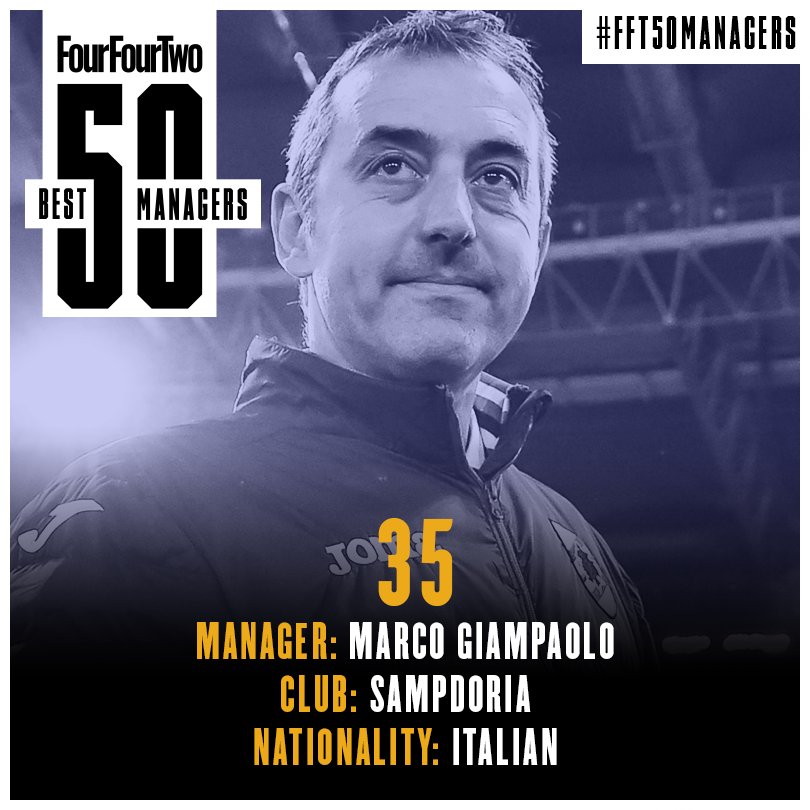
Not only Giampaolo did take over from departing legend Maurizio Sarri at Empoli in 2016, he actually improved the team and was quickly snapped up by Sampdoria.
There, he has found the perfect blend of young, hungry talent (Dennis Praet) and experienced veterans (captain Vasco Reginin and 35-year-old striker Fabio Quagliarella), moulding them into a formidable team capable of shocking Serie A’s top sides. Milan Skriniar and Lucas Torreira may have secured moves to bigger clubs, but the 51-year-old continues to deliver results for the Genovese outfit. – Adam Digby
34. Rafael Benitez (Newcastle)
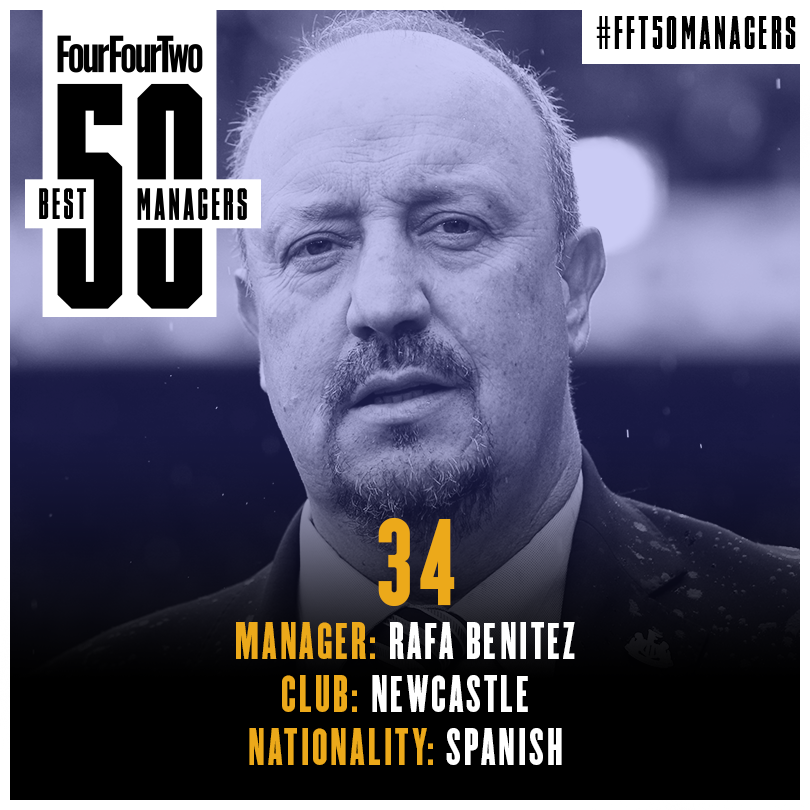
Rafael Benitez loves a fight. Whether his own fans (Valencia and Chelsea), the owners (Liverpool) or the players (Real Madrid), Benitez will never lose his unshakable belief that he is always right.
The Newcastle squad which finished 10th last season had no business being in the Premier League’s top half; the footballing equivalent of winning the derby on a gerbil. Now it’s up to Mike Ashley to back Benitez, or risk losing both him and the Magpies’ top-flight status.
The rumour mill suggests a temporary truce has been forged at a club dinner attended by manager, players and owner, the latter promising to spend in January. Ashley would do well to pay up because Benitez thrives in this sort of environment. – Andrew Murray
33. Sergio Conceição (Porto)
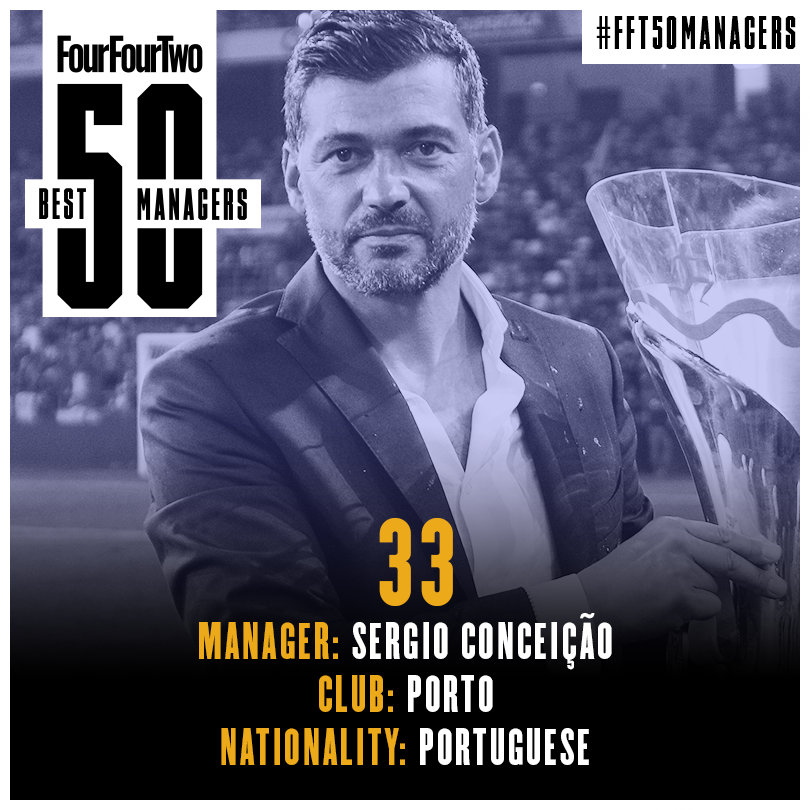
It’s little wonder that Marco Silva rejected the chance to coach Porto in the summer of 2017 – the brief was to make €100 million from player sales to satisfy FFP and win the Primeira Liga back from Benfica.
Conceição grasped the challenge with both hands and his positive attitude – reflected in his gutsy, tough and attacking team – transformed a club that had spent four trophyless years in the doldrums. His Dragons show real bravery in Europe, too, no matter the opposition. – Andy Brassell
32. Marcelo Gallardo (River Plate)
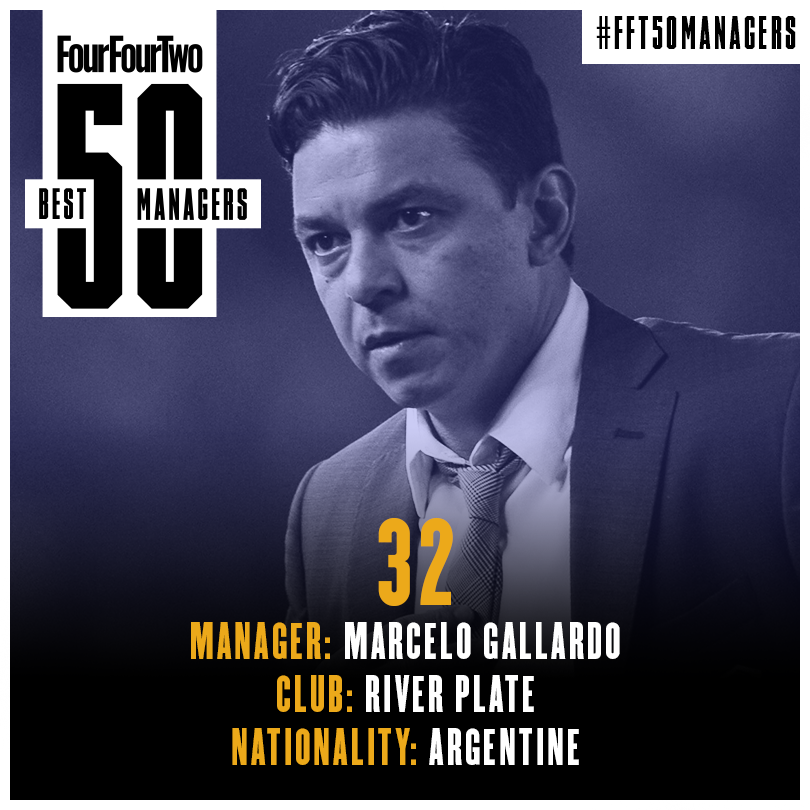
Argentines call him 'Napoleon' for a reason. In six continental tournaments with River Plate, Gallardo has managed to lead the Buenos Aires giants to five semi-finals, winning the Copa Libertadores, a Copa Sudamericana and two Recopas, among other trophies.
Another disciple from Marcelo Bielsa’s school, ‘El Muneco’ (The Doll) was the first coach in the country’s first division to hire a female assistant as a member of his staff and has recently renewed his contract until 2021. If the 45-cap former playmaker sees that deal out, Gallardo’s seven-year spell will be the longest in River history. – Marcus Alves
31. Unai Emery (Arsenal)
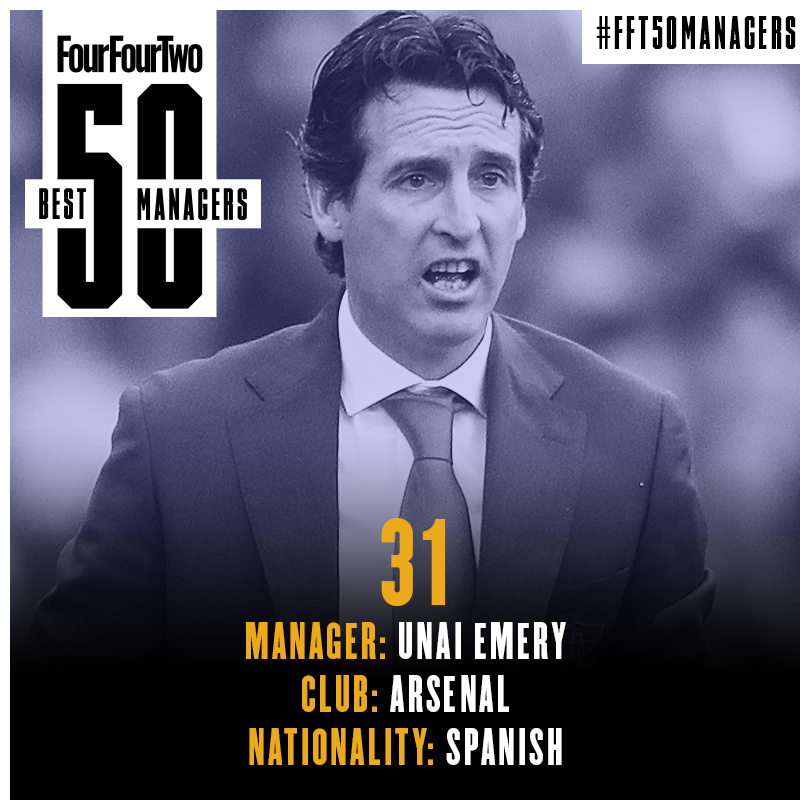
Emery’s spell at PSG was a damp squib – his card was marked after losing a one-horse title race in his first season, and watching the Parisians blow a 4-0 first-leg win against Barcelona in the Champions League. Ultimately, Emery didn’t make it beyond the last 16 and struggled with the internal politics of a notoriously demanding club, although he redeemed himself somewhat with a straightforward title in his final year.
At Arsenal, the Spaniard has restored a feel-good factor long lost at the Emirates Stadium. It’s early days, but there’s much to be optimistic about for Gooners in their new era. – Joe Brewin
50-41 • 40-31 • 30-21 • 20-11 • 10-1
30. Bruno Genesio (Lyon)
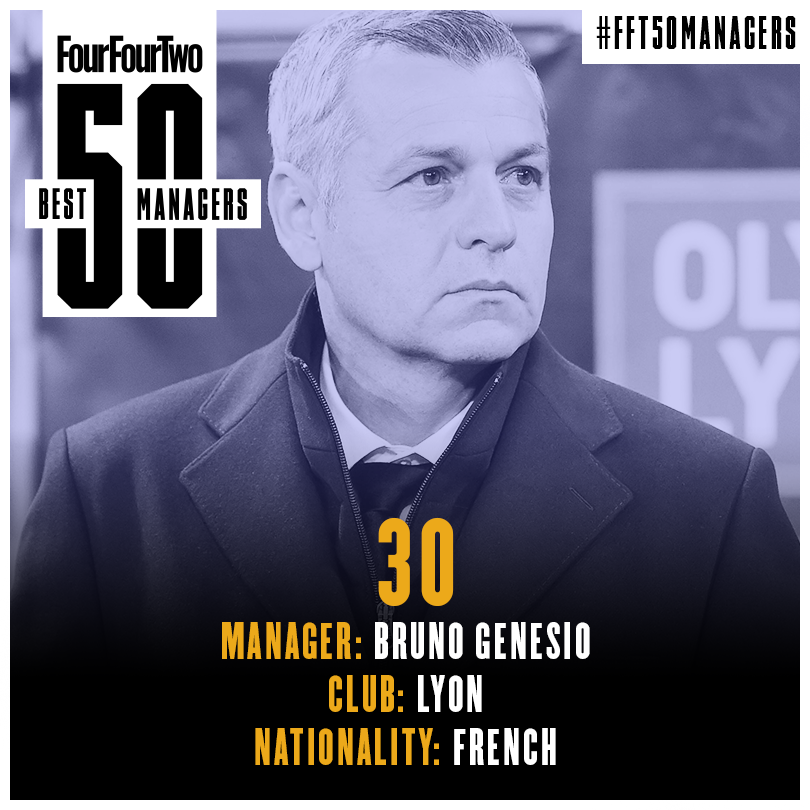
Lyon fans have never warmed to Genesio, yet the low-key coach continues to do a good job against the odds. Les Gones finished third in Ligue 1 last May and are a good bet to earn a fourth straight top-four place under the 52-year-old this season.
Genesio also deserves praise for drawing the best out of Memphis Depay, Nabil Fekir and Bertrand Traore at various points over the past 12 months, making l’OL one of the continent’s most consistently entertaining sides. – James Eastham
29. Niko Kovac (Bayern Munich)
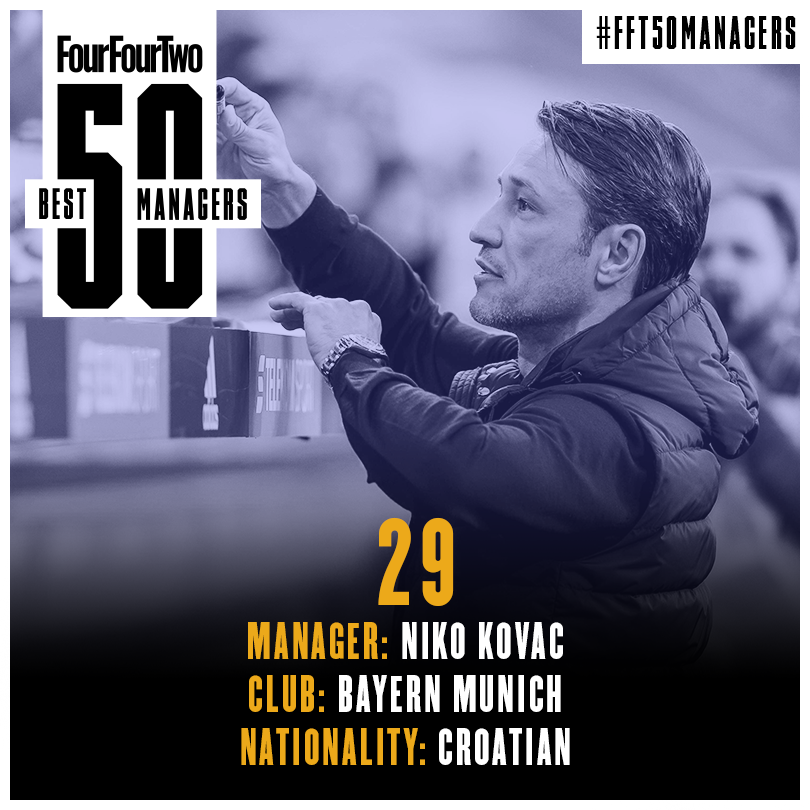
Middling managerial pedigree made the Croat a surprise Bayern choice, prompting the club to reassure sceptics that they’d first been rejected by the re-retiring Jupp Heynckes and a PSG-bound Thomas Tuchel. Four games without a win in October – including a 3-0 home hozing to Borussia Monchengladbach – didn’t help either.
But Roten fans need only remember the 3-1 DFB-Pokal final defeat to Kovac’s Eintracht Frankfurt in May for the tactical nuance and off-pitch discipline he will bring to Bavaria.
A 5-0 Supercup thumping of his former club was a good springboard, especially with the pre-arranged Leon Goretzka their only signing, as Kovac’s team won their first four league games by two goals or more. Now get back to that form. – Huw Davies
28. Renato Gaucho (Gremio)
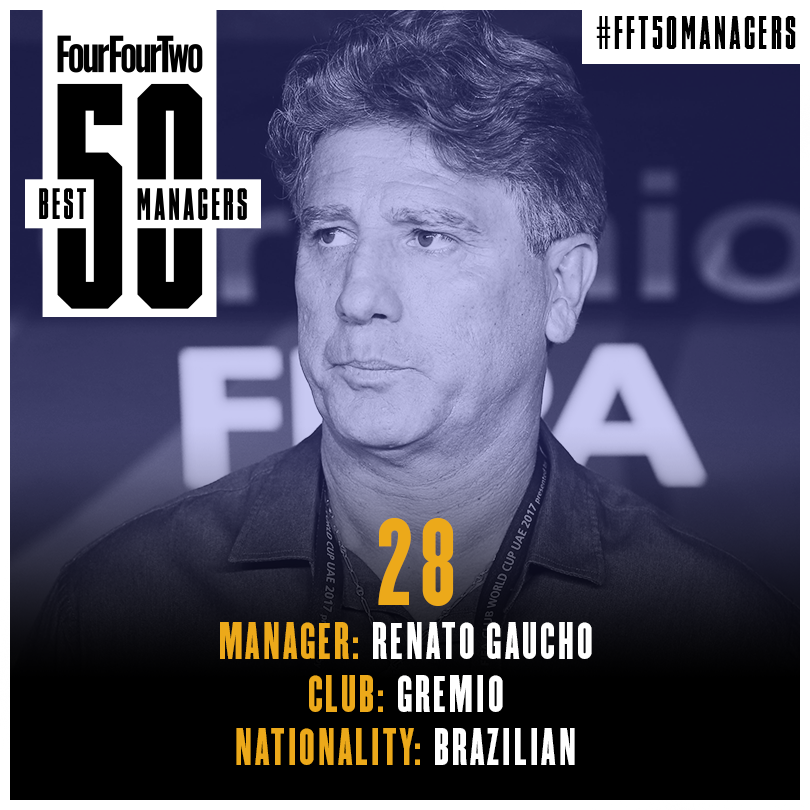
At a time when most of his colleagues were spending their days abroad trying to pick up a thing or two from Guardiola, Ancelotti and Mourinho, Renato preferred to remain on Rio de Janeiro’s beaches playing his favorite sport, foot-volley. “Those that need to learn and study can go to Europe,” he said.
It took over two years for the man known by his mother as ‘Renato Portaluppi’ to get a job until Gremio came after him in late 2016. Many thought it a risky choice, but they couldn’t be more wrong.
In November 2017, Renato became the first Brazilian to win the Copa Libertadores as both a player and a coach, and has lifted three other trophies since then. He’s got one foot in another Libertadores final after Gremio beat River Plate in the first leg of their semi-final. No surprise, then, that he's the favourite to succeed Tite as Brazil’s coach. – Marcus Alves
27. Jose Bordalas (Getafe)
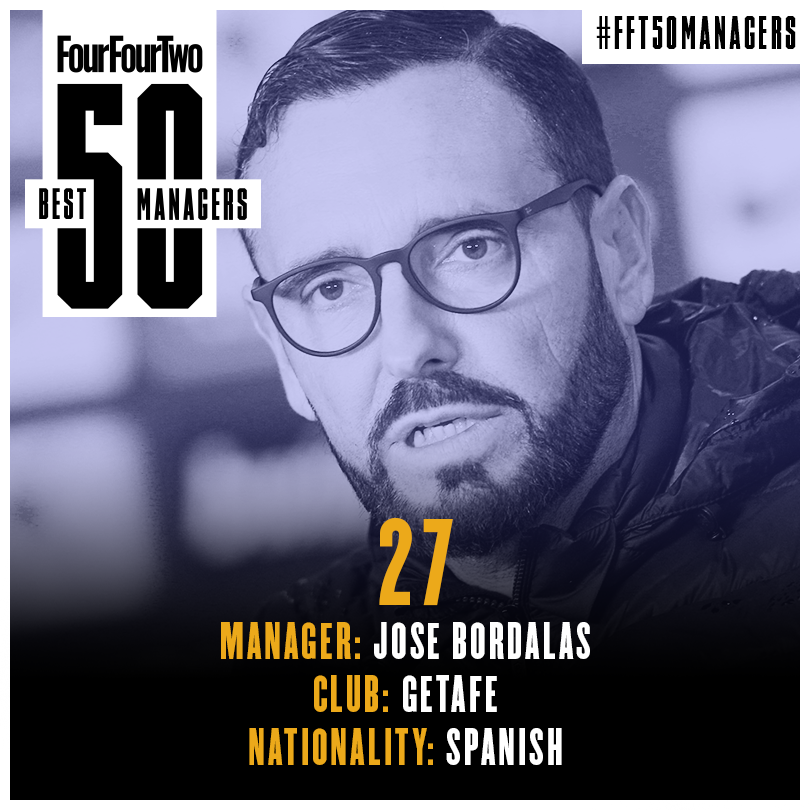
Simply, Bordalas has completely transformed a club. When he took over Getafe at the end of September 2016, they were second-bottom of Spain’s Segunda Division.
In the same season he got them promoted to La Liga, then steered los Azulones to an eighth-placed finish in their first season back, only five points off a European berth.
Bordalas professes immense levels of work rate, focus and defensive solidity. Getafe players have followed his every move, and it makes them one of the toughest teams to beat in Spain. How much longer they’ll be able to keep one of Europe’s hottest managerial properties remains to be seen. – David Cartlidge
26. Domenico Tedesco (Schalke)
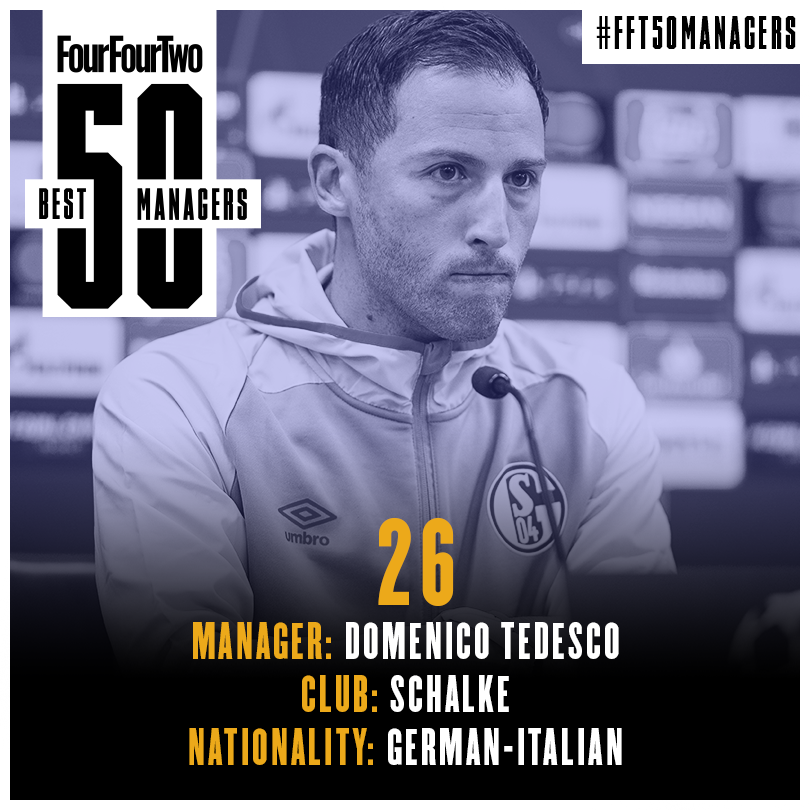
Tedesco must give one hell of a job interview. Schalke paid €500,000 to hire a 31-year-old business engineering graduate whose 11-match managerial career comprised saving Erzgebirge Aue from relegation to the third tier (via a play-off).
He repaid their faith by taking bottom-half Schalke to a magnificent second, highlights including a 4-4 draw at rivals Dortmund having trailed 4-0 at half-time.
The German-Italian is finding life harder since Leon Goretzka and Max Meyer left on frees this summer and opponents figured out his direct, counter-attacking 3-4-3 setup: Schalke have lost six of their first eight league matches of 2018/19, but have at least started their Champions League campaign well. – Huw Davies
25. Jose Mourinho (Manchester United)
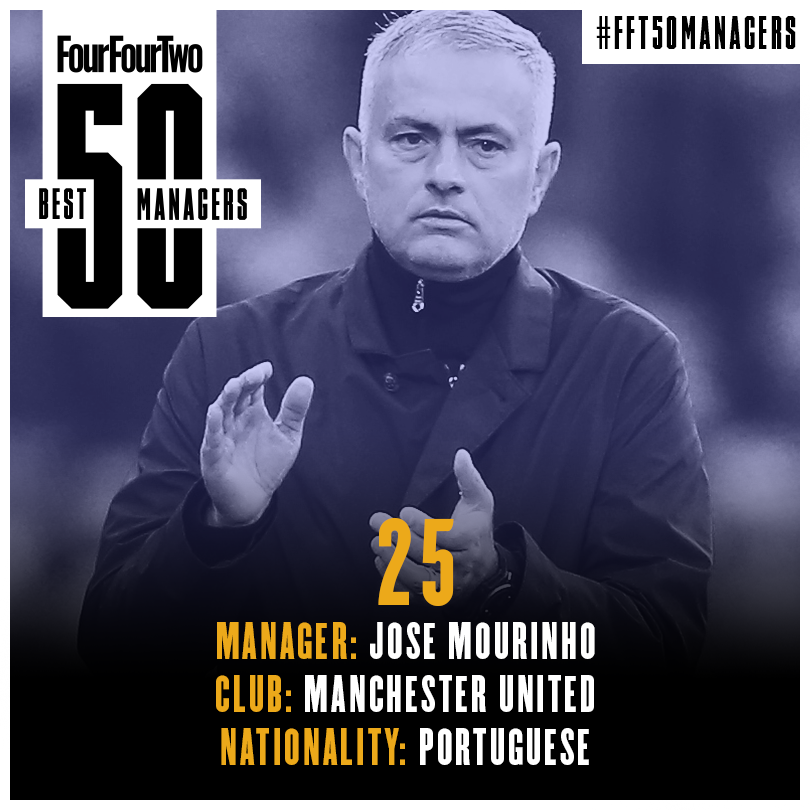
Where do you even start? A second-place finish in the Premier League and an FA Cup final was certainly a decent return, but the substance of that performance – on the pitch and off it – has created a swirl of asterisks.
As ever with Mourinho, there has been nearly constant acrimony. The Paul Pogba saga continues to dominate the news cycle and the January transfer window will presumably bring another round of conflict with Ed Woodward, plus more public demands for greater backing.
He remains a fine football mind, but why must it always be so fractious – and why, in spite of such exorbitant spending, do Manchester United remain so underwhelming? Their stars may give them the punching power to remain broadly competitive, but they remain by far the least joined-up team within their weight class. Jose isn’t the same anymore. – Seb Stafford-Bloor
24. Pablo Machin (Sevilla)
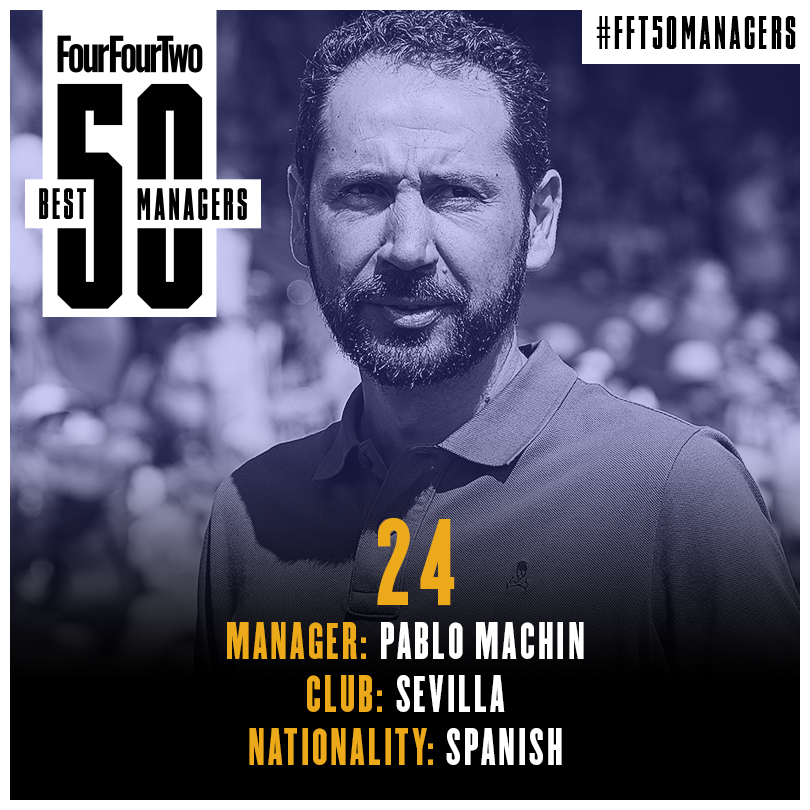
After securing promotion to La Liga for the first time in Girona’s history, Machin didn’t stop there. Instead, he took them to an unprecedented 10th-place finish in their debut campaign and made them a serious top-flight outfit which claimed the scalps of Real Madrid, Villarreal, Athletic Bilbao and Celta Vigo.
When he took over at Girona in March 2014, they were bottom of Spain’s second division. It was inevitable that he’d be snapped up for greater things, and they came in the form of Sevilla, who acted quickest to snare him in May with the hope of instilling some much-needed organisation and fight into the club.
It’s so far, so good – Machin’s side are third in La Liga after nine games after trouncing Real Madrid 3-0 in September. – David Cartlidge
23. Gian Piero Gasperini (Atalanta)
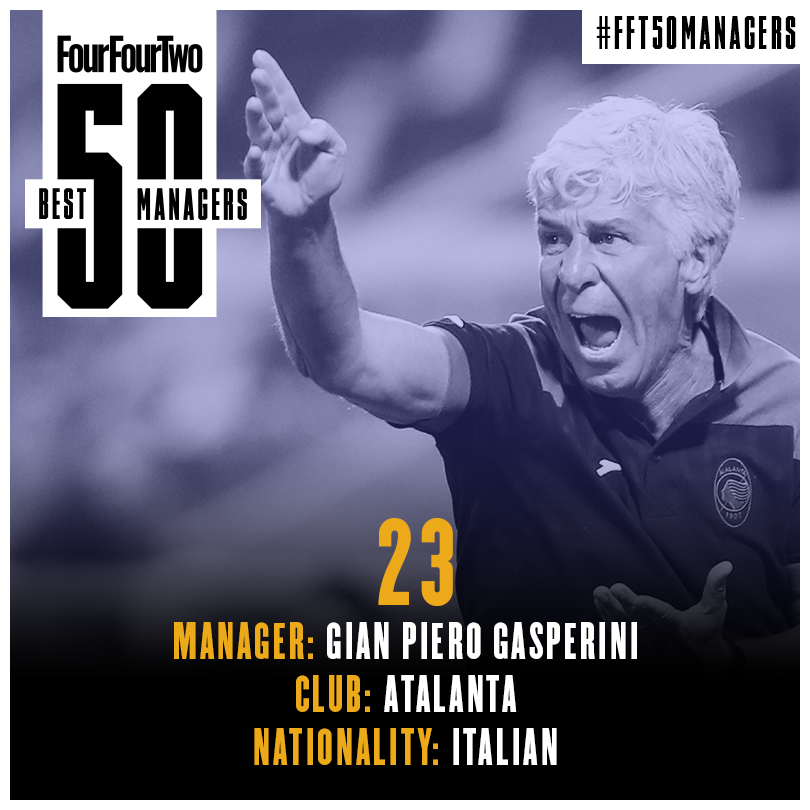
While many of the managers on this list have been included for tactical advances or lifting important trophies, Gasperini is a little different. The avuncular 60-year-old has achieved little tangible success – although steering Atalanta to Europe for the first time in 26 years was quite something – but his ability to develop players is frankly astonishing and he has found a perfect home at Atalanta.
The quiet and unassuming ‘Gaspe’ has produced a steady stream of talent that has moved on to Serie A’s bigger clubs, and continues bring the best from the young prospects at his disposal. – Adam Digby
22. Paulo Fonseca (Shakhtar Donetsk)
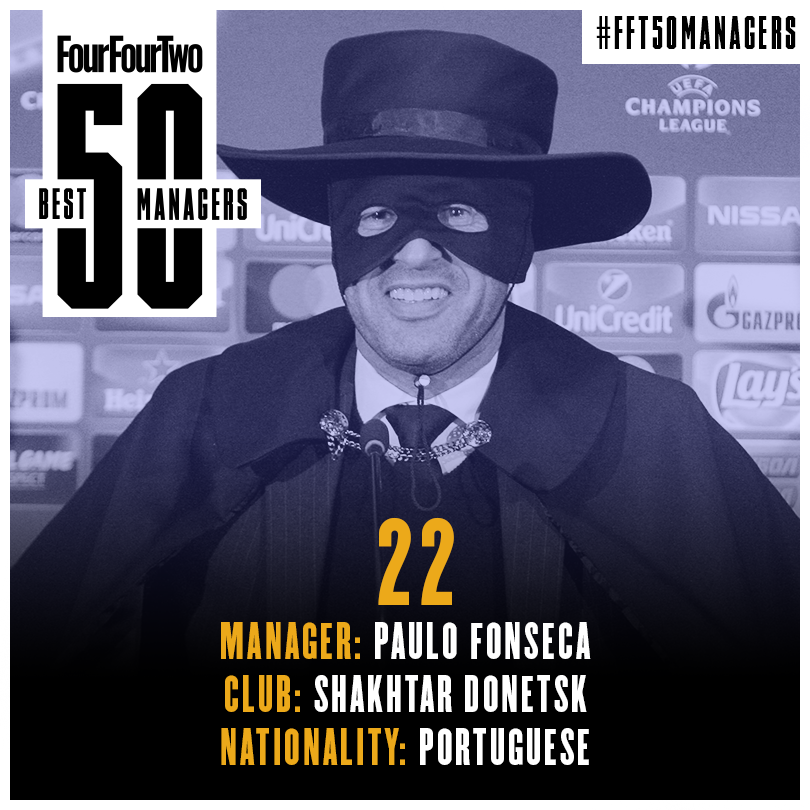
It should be heresy to suggest that the great Mircea Lucescu has a challenger as the club’s greatest-ever coach, but Fonseca has done the near-impossible in replacing a long-serving club legend with distinction.
After a shock elimination by Young Boys in Champions League qualification within weeks of taking the helm in 2016, Fonseca has delivered successive league-and-cup doubles plus a Champions League last 16 place, all in the face of slashed playing budgets and the continuing exile from Donetsk. Impressive. – Andy Brassell
21. Zlatko Dalic (Croatia)
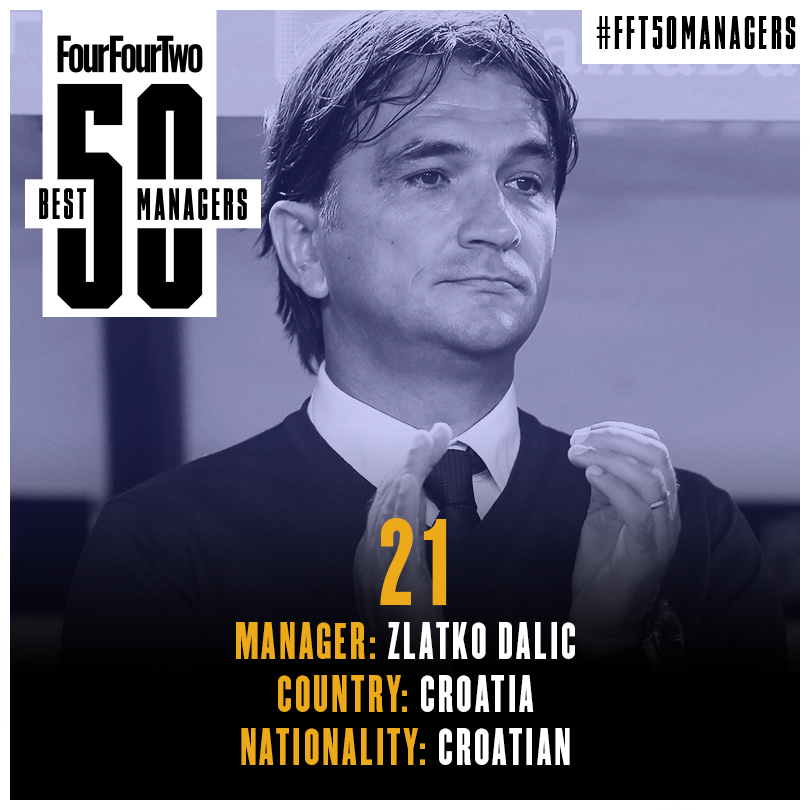
Few people outside of Croatia and, er, the Persian Gulf knew who Dalic was when he unexpectedly became Croatia national team coach in October 2017, just two days before a crucial World Cup qualifier against Ukraine.
Lose, and his career would have lasted about 48 hours. He won, made it through the play-offs and proceeded all the way to the World Cup final.
Yes, there were penalty shootouts against Denmark and Russia, but Dalic deserves huge credit for uniting the dressing room despite a very delicate political situation. An easy-going attitude with media helped to promote his personal brand, too. – Michael Yokhin
50-41 • 40-31 • 30-21 • 20-11 • 10-1
20. Thomas Tuchel (PSG)
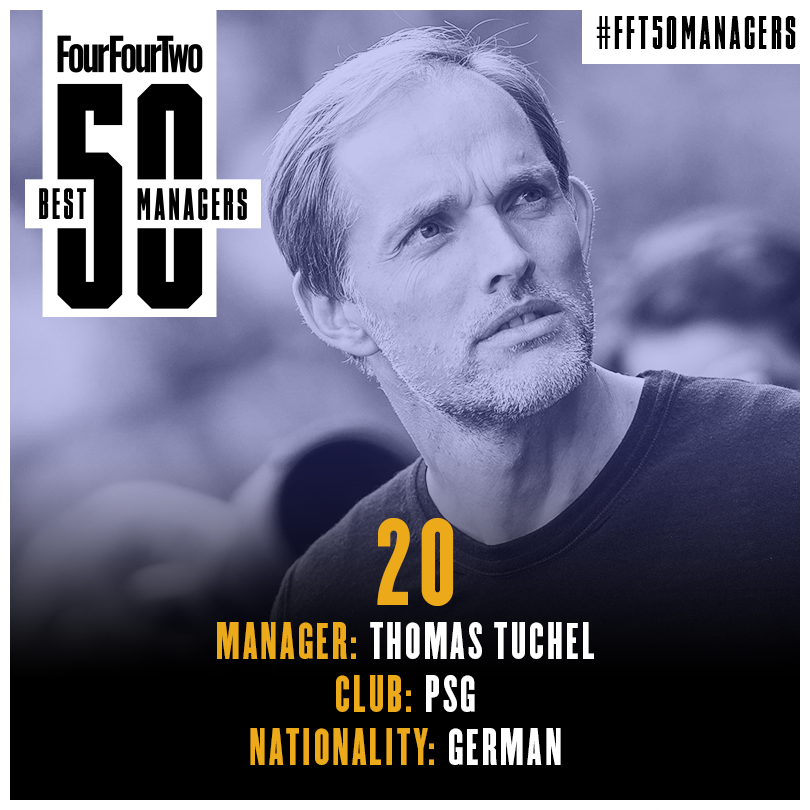
PSG is a happier place to be under Tuchel than it was during the dying days of Unai Emery’s reign. The genial German has injected a sense of fun at the training ground and the players have responded with a record-equalling run to begin the season (11 Ligue 1 wins and counting).
The Champions League remains the Holy Grail, and there are still major questions about their ability to go all the way as a team, but with Tuchel at the helm you sense PSG have their best-ever chance of getting their hands on football’s most coveted prize.
The German has been willing to make tough decisions in his short tenure so far – see his dropping of Kylian Mbappe after the Frenchman turned up late to a meeting – and could be the firm hand PSG have needed for some time. – James Eastham
19. Phillip Cocu (Unattached)
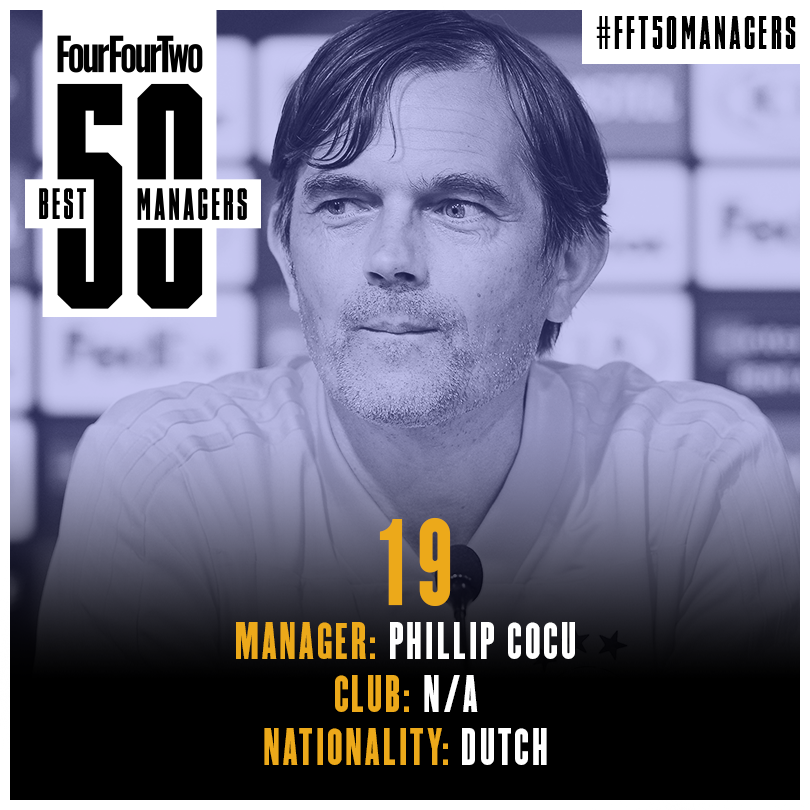
Having worked under famous names Louis van Gaal and Guus Hiddink during his illustrious playing career, Cocu was always well prepared to become a good coach – but few expected such swift success.
The former Barcelona midfielder served as Bert van Marwijk's assistant in reaching the 2010 World Cup Final with Holland, and then took the reins at hometown club PSV two years later, initially as caretaker.
Three Eredivisie titles in five seasons followed, but his summer move to Fenerbahce turned out disastrous: the Turkish side won only three of Cocu’s first 15 games, leading to an inevitable sacking. – Michael Yokhin
18. Antonio Conte (unattached)
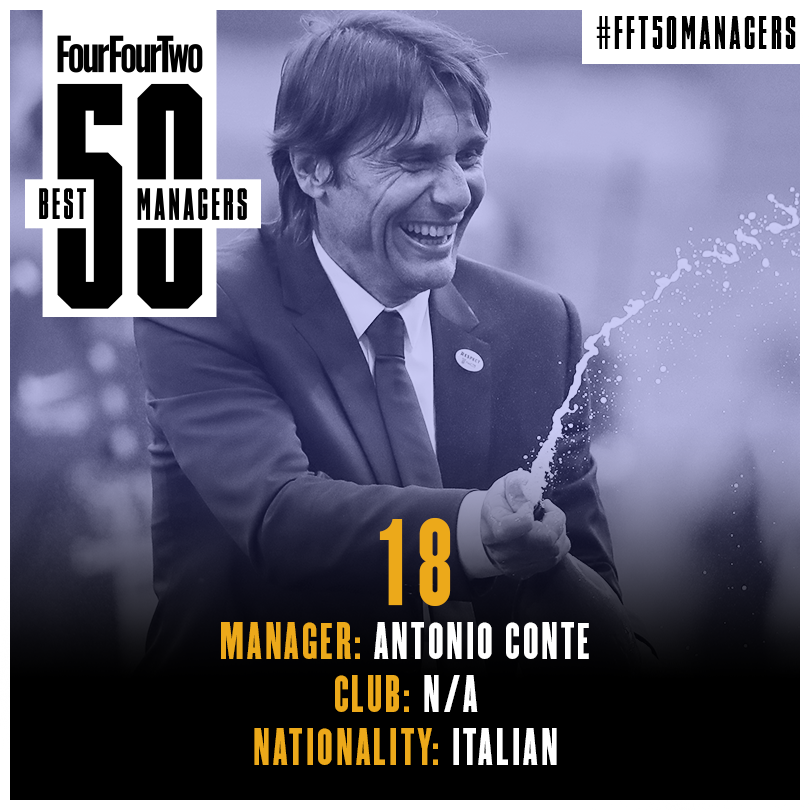
David Luiz, Willian and Diego Costa may not think much of his man-management skills, but Conte left the Premier League with the second-best win ratio in its history (behind Pep Guardiola), and the third-best points-per-game record (after Guardiola and Alex Ferguson). He also added the 2017/18 FA Cup to his 2016/17 Premier League title.
Failing to qualify for the Champions League, however, meant Conte’s dismissal from Chelsea felt inexorable even while he put their players through the first week of pre-season this summer.
Still, the 49-year-old has shown that he’s more adaptable than almost any other coach around – and it looks highly likely that he’ll be the one chosen to mop up Julen Lopetegui’s mess at Real Madrid. So what next? – Huw Davies
17. Janne Andersson (Sweden)
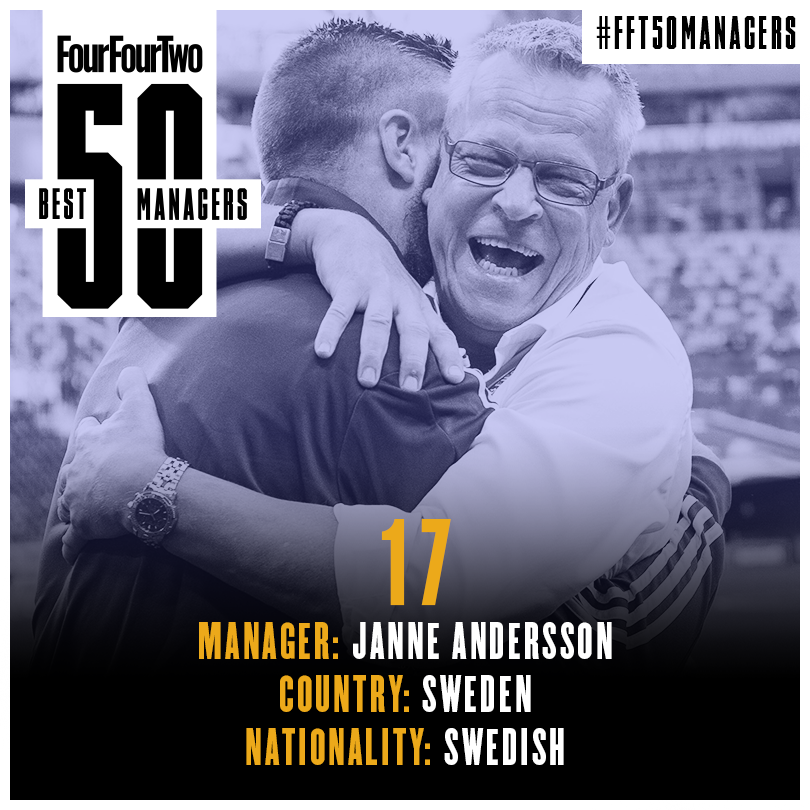
Andersson is certain to be remembered as one of Sweden’s best-ever coaches, thanks in part to his decision to ignore one player in particular.
Zlatan Ibrahimovic hinted at his desire to return ahead of the 2018 World Cup, but modest Andersson was having none of it, so the professional caricature had to content himself with Visa adverts instead. Team spirit is of monumental importance for Andersson, which is how he led unheralded IFK Norrkoping to the 2015 Allsvenskan title.
Sweden overcame Holland and Italy in World Cup qualifiers, and – with the magnificent Andreas Granqvist succeeding Zlatan as skipper – exceeded all expectations in Russia, reaching the quarter-finals. Tactically astute and an excellent man manager who digs out his players if they throw sock tape on the dressing room floor, Andersson is now a hero. – Michael Yokhin
16. Luis Enrique (Spain)
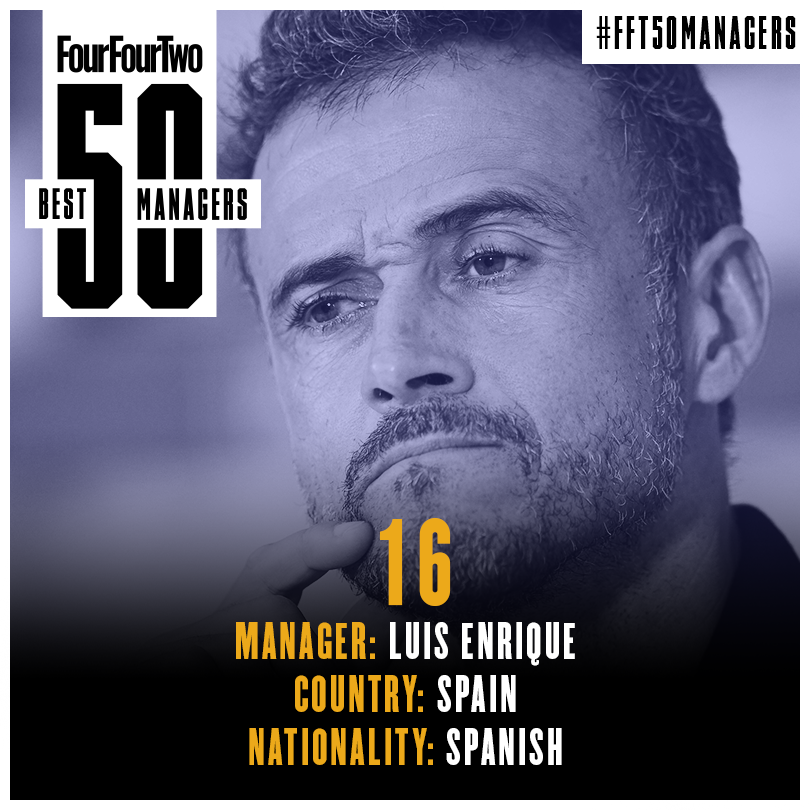
Nine titles in three seasons. Enrique, love him or loathe him, was a tremendous success at Barcelona and warrants acclaim for his achievements.
Now with Spain, he is determined to do with the national side what he did with Barça: make them tougher to beat and build a strong spine, but also play a brand of football that is direct and attacking. Ideally, that will conclude in success.
After the farcical scenes in Russia, it’s on ‘Lucho’ to make sure Spain are taken seriously once again as an elite side – starting with more results like their 6-0 trouncing of Croatia. He isn’t one to be messed with, and la Roja stand the best chance of regaining their edge with the fitness fanatic Asturian in charge. – David Cartlidge
15. Marcelino (Valencia)
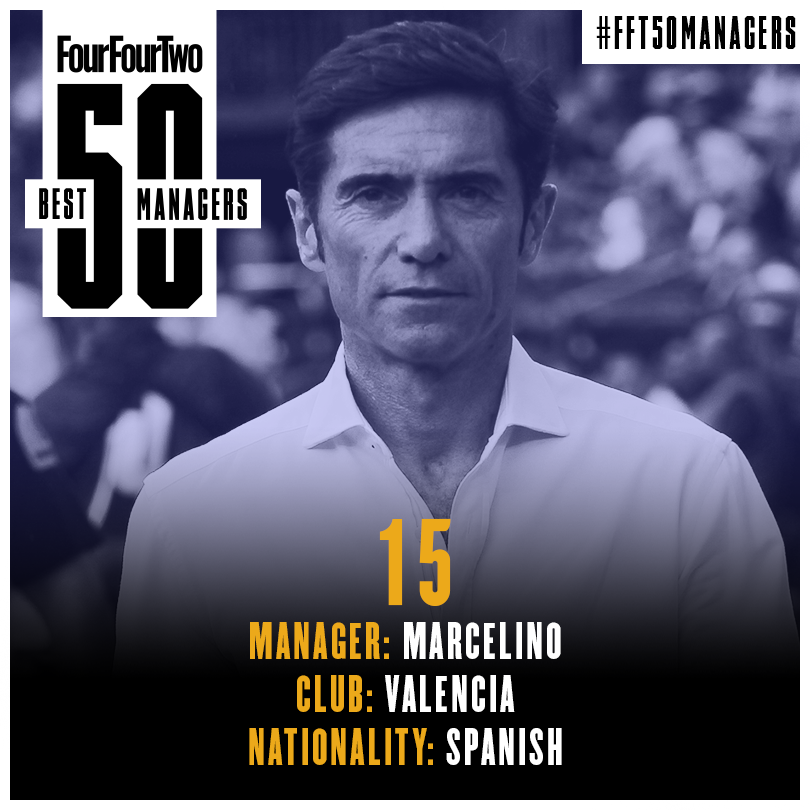
Coaches who spend time away from the game often find their reputation augments while they’re off gallivanting, but Marcelino was worth the wait for Valencia. He took Villarreal from second-tier anonymity to the Europa League semi-finals in four years from 2012 – leaving the Yellow Submarine on the eve of 2016/17 – but got to work quickly after arriving at Mestalla last summer.
His influence instilled much-needed calm on and off the pitch, with smart signings on a limited budget and tactical discipline creating a new-look side that secured a return to the Champions League at the first attempt. – Andy Brassell
14. Lucien Favre (Borussia Dortmund)
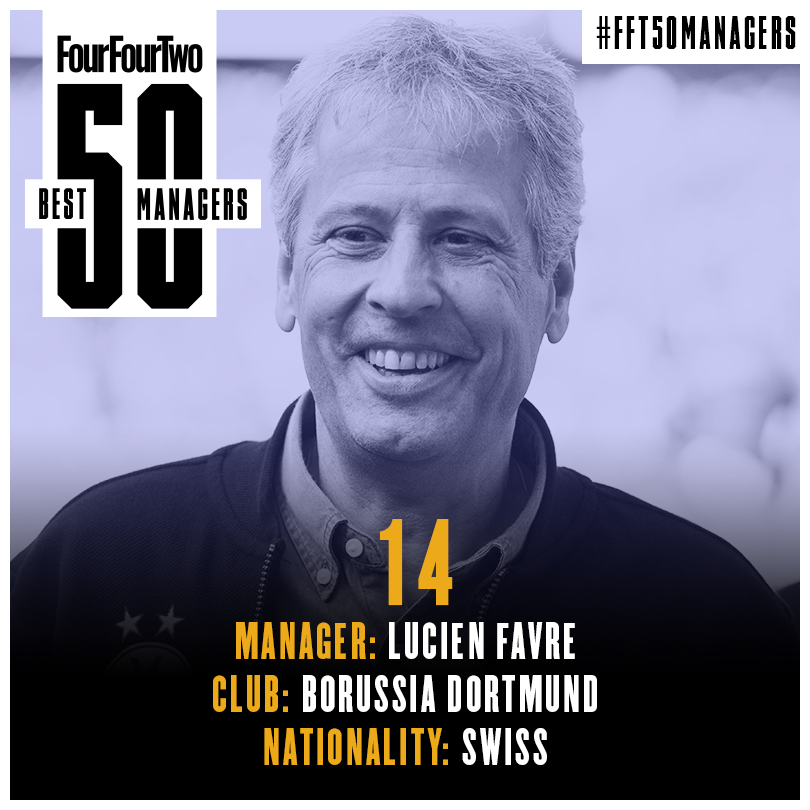
The experienced Swiss coach’s spell at Nice might just be distilled to reviving Mario Balotelli’s career for many observers, but it was about so much more than that.
Don’t get us wrong, that was mightily impressive, but Favre followed up snaring a Champions League place ahead of giants Lyon and Marseille by stabilising a team which lost star turns Hatem Ben Arfa and Dalbert ahead of last season.
There was a Europa League last 32 place thrown in, and his legacy upon leaving for Borussia Dortmund – immediately rejuvenated under him – was the big-money sales of Jean Michael Seri and Alassane Plea, who both reached maturity under Favre. – Andy Brassell
13. Eusebio Di Francesco (Roma)
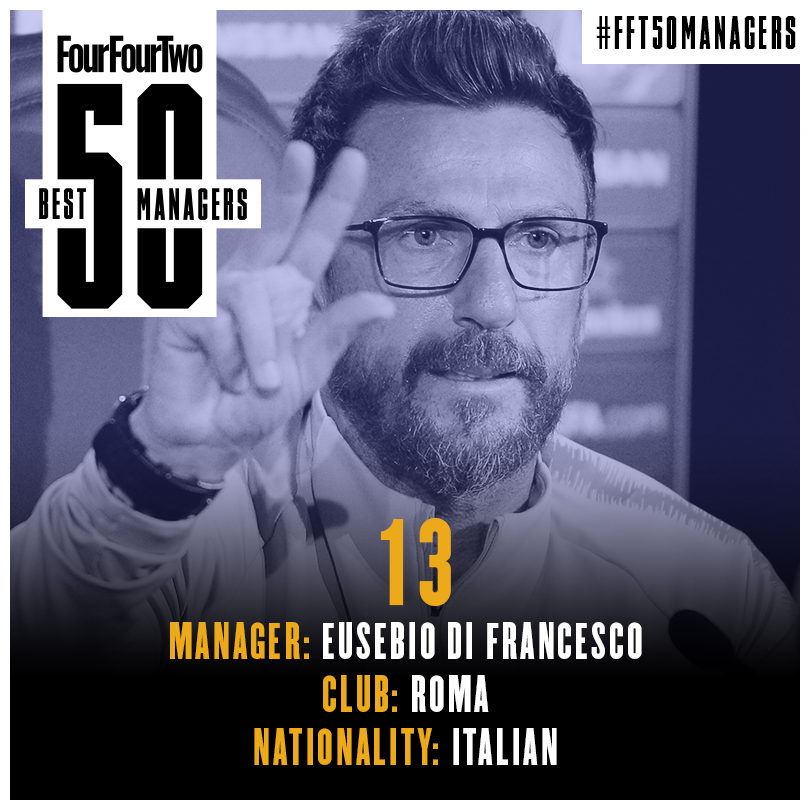
Moving from Sassuolo to one of Serie A’s top clubs was always going to be difficult, but Di Francesco managed it perfectly. That he did so while overcoming the losses of a Roma icon (Francesco Totti), his best defender (Antonio Rudiger) and most potent attacker (Mo Salah) only reinforces that belief.
With such a talent drain, the affable 49-year-old managed to not only maintain the third-place finish achieved by his predecessor Luciano Spalletti, but also push the Giallorossi to the Champions League semi-finals.
Second-season syndrome may be proving a potent force this term – now, after losing goalkeeper Alisson to Liverpool – but Di Francesco remains a coach on the rise. – Adam Digby
12. Leonardo Jardim (Monaco)
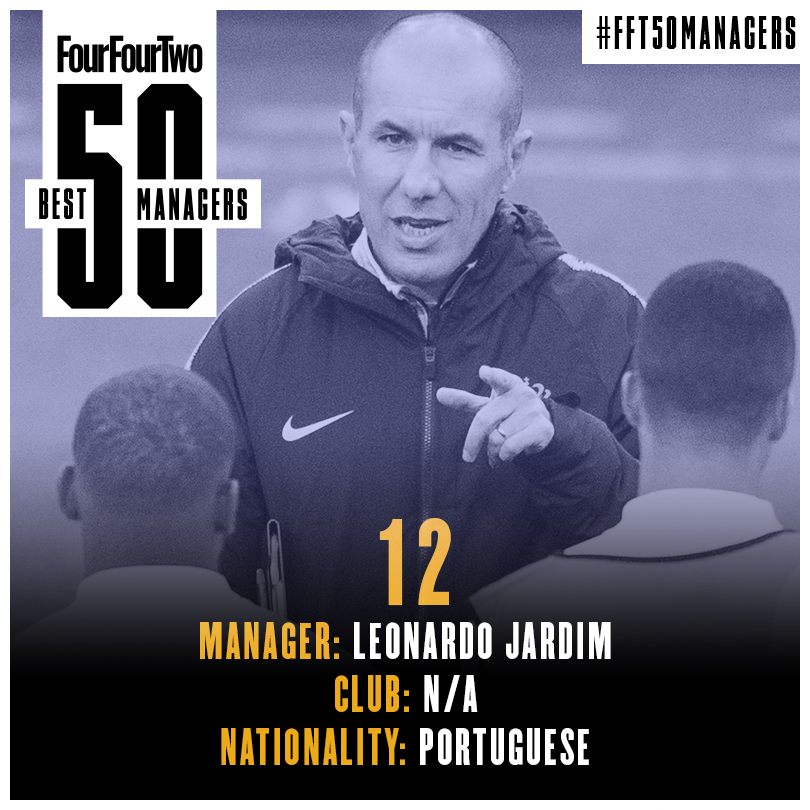
This season has been Jardim’s toughest campaign at Monaco to date, and even culminated in his sacking, but that shouldn’t detract from what he achieved during the first half of the year – and indeed, long before that.
The equanimous 44-year-old performed a minor miracle by guiding the Principality outfit to Ligue 1’s 2017/18 runners-up spot despite the sales of Benjamin Mendy, Tiemoue Bakayoko, Bernardo Silva and Kylian Mbappe before the season kicked off.
Monaco’s buy-and-sell policy has run out of steam now, but Jardim’s personal stock remains high thanks to the immense job he did during four-and-a-half years in charge. He won’t be short of admirers when the top jobs open up again. – James Eastham
11. Tite (Brazil)
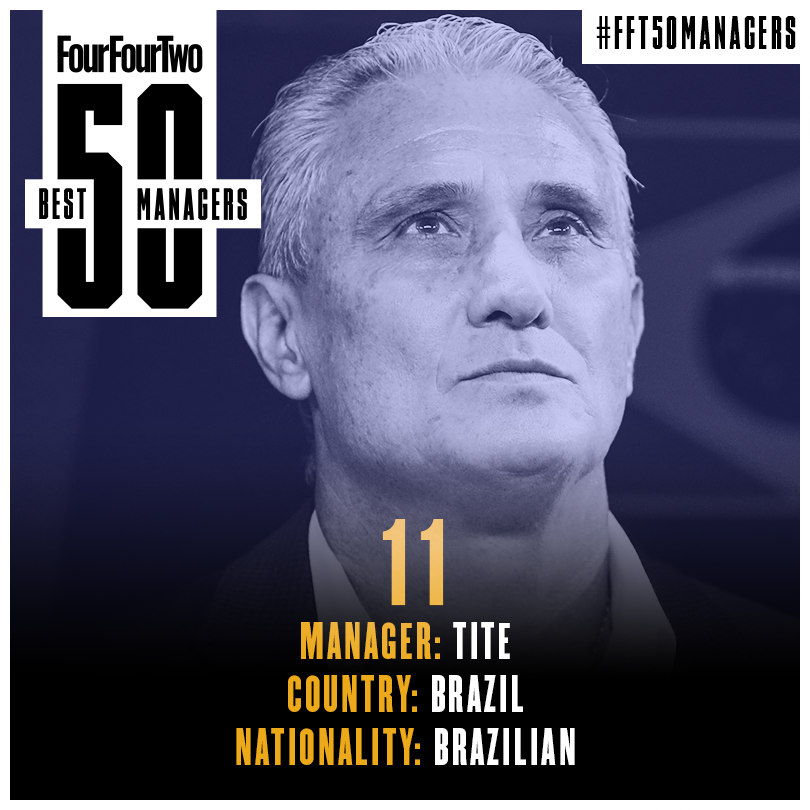
Brazil wisely extended Tite’s contract to 2022, ignoring criticism for his rotation of the captaincy and being “prepared to go to the grave with Gabriel Jesus”. He should have been appointed long before 2016, when he followed Dunga’s second disastrous spell by winning 12 and drawing two of the Seleção’s remaining 14 World Cup qualifiers, taking them to Russia as joint-favourites.
But two years of anticipation ended abruptly in Kazan, where Belgium’s Roberto Martinez outwitted Tite in their quarter-final by playing Kevin De Bruyne as a false nine with Nacer Chadli in midfield and Romelu Lukaku on the wing. You can’t plan for that. – Huw Davies
50-41 • 40-31 • 30-21 • 20-11 • 10-1
10. Ernesto Valverde (Barcelona)
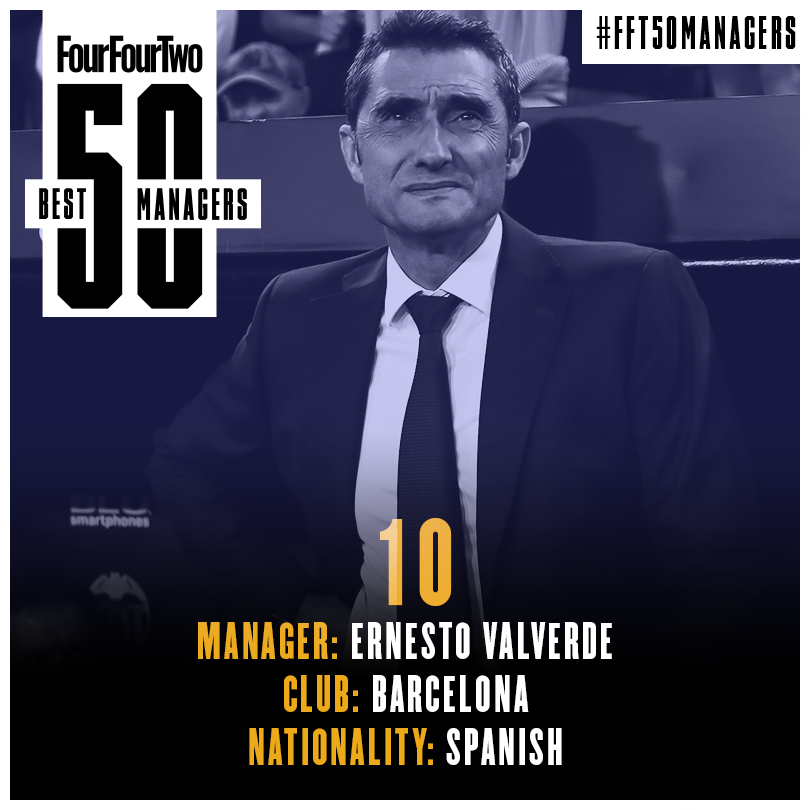
It’s easily forgotten that at the start of 2017/18, Barcelona were few tipsters’ La Liga favourites. Accusations of boardroom incompetence and the painful sale of Neymar loomed large, not to mention the city’s heavy political atmosphere.
Former Athletic Bilbao coach Valverde also had to cope with a serious injury to his star signing, the Neymar replacement Ousmane Dembele, but he got on without fuss and turned a flagging team into runaway champions. Only a 5-4 defeat at Levante – the title already secured – on the penultimate day of the season prevented an unbeaten season.
They may be more pragmatic than Guardiola’s Barça, and as yet unfulfilled in Europe, but Valverde has put a stop to talk that the club are wasting Lionel Messi’s prime. – Andy Brassell
9. Julian Nagelsmann (Hoffenheim)
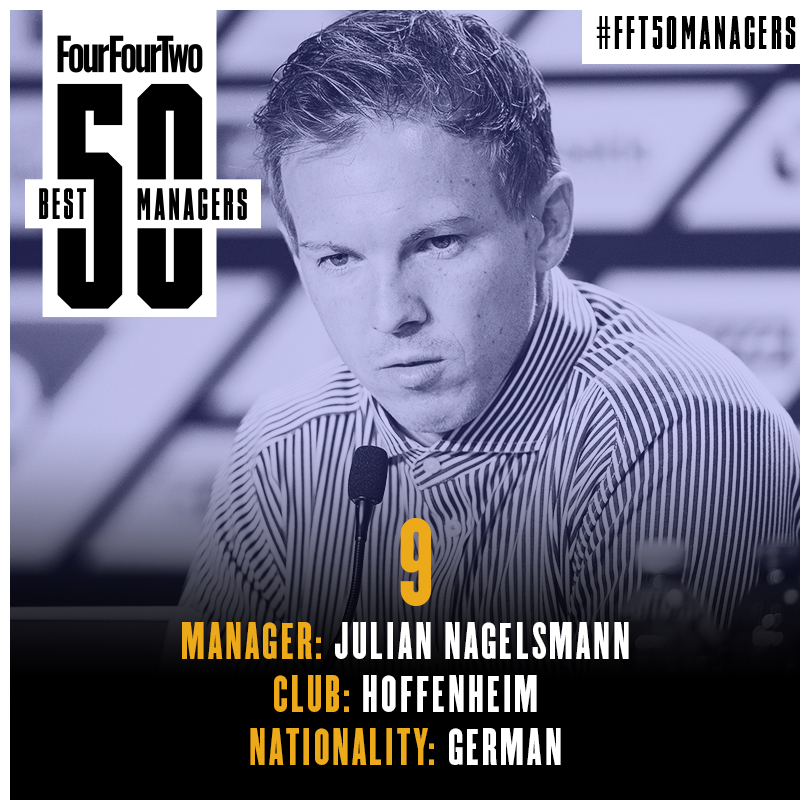
Nagelsmann’s achievements at just 31 years of age are extraordinary. His career has been one dizzy blur from the moment he became Hoffenheim’s head coach five months ahead of schedule in February 2016, following Huub Stevens’s health problems.
Since immediately steering a seemingly doomed team away from relegation, Nagelsmann has taken a star-free side to successive top-four finishes, culminating in last season’s automatic Champions League qualification. All of it was achieved despite losing the spine of Niklas Sule, Sebastian Rudy and Sandro Wagner to Bayern Munich.
The next stop is aiming to break Bayern’s hegemony when he takes the helm of RB Leipzig in the summer of 2019. Daunting? There’s no such thing with this man. – Andy Brassell
8. Maurizio Sarri (Chelsea)
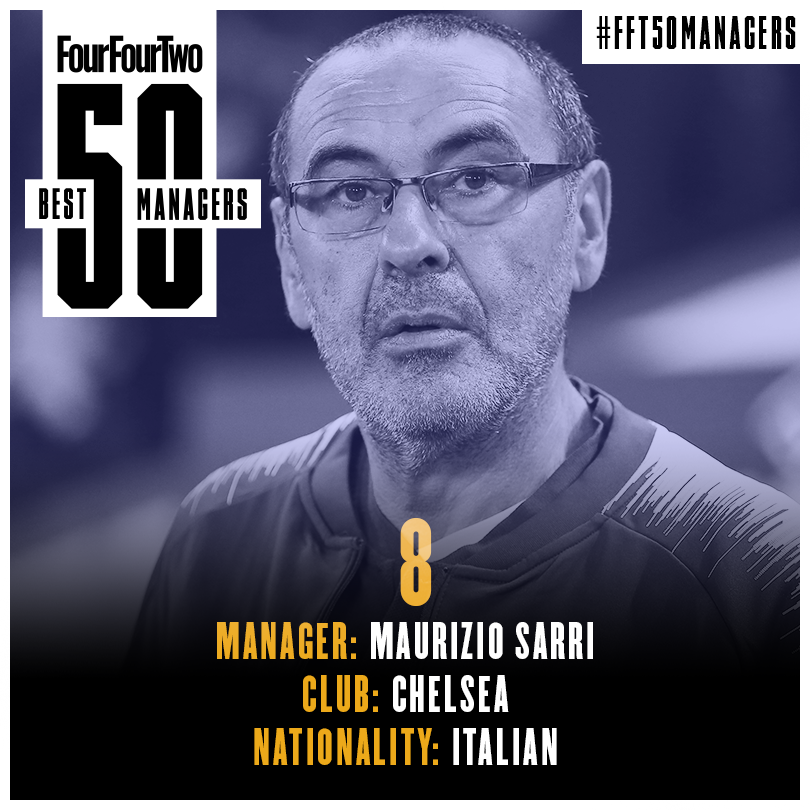
Gruff, coarse and more than a little outspoken, chain-smoking former banker Sarri doesn’t look like a man at the vanguard of footballing excellence. He doesn’t dress as sharply as your typical Italian coach either, but there’s no denying that for the past few seasons he has been a revelation, transforming Napoli into one of Europe’s most beloved sides.
Their intricate passing and speedy interplay – an approach labelled ‘Sarrismo’ on the peninsula – was so breathtaking that Chelsea swooped this summer.
The 59-year-old has adapted easily to Premier League life, and while he remains firmly clad in a club tracksuit, his new team is already one of Europe’s most stylish. – Adam Digby
7. Mauricio Pochettino (Tottenham)
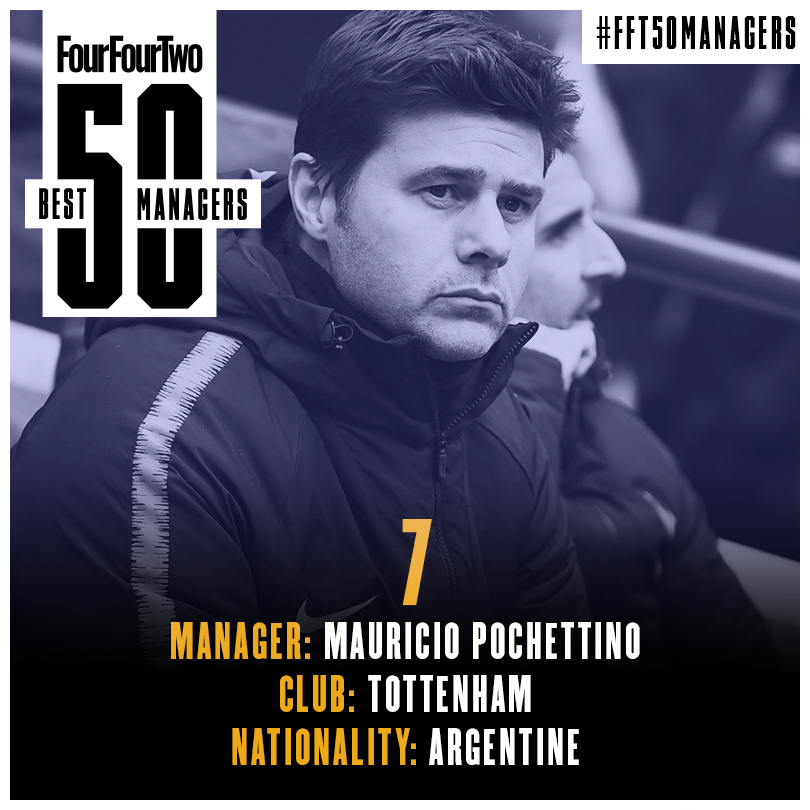
SEE ALSO Success has created its biggest victim in Mauricio Pochettino – and yet still he defies expectations
Rival supporters are sick of hearing about Tottenham’s frugality, but it bears repeating: after a bedding-in season where they came fifth, Pochettino’s Spurs have recorded three consecutive top-three finishes with a transfer net spend under £30m.
In that time, Manchester City have splurged £525m on transfer fees (taking player sales into account, remember), Manchester United £365m, and Arsenal, Liverpool and Chelsea over £150m each. Yes, Pochettino is working miracles.
His poor record away to the big sides is improving too, as 2018 brought the Argentine his first wins at Stamford Bridge and Old Trafford as Spurs scored three in each. All that’s needed is that elusive first trophy and a little more nous in Europe. – Huw Davies
6. Didier Deschamps (France)
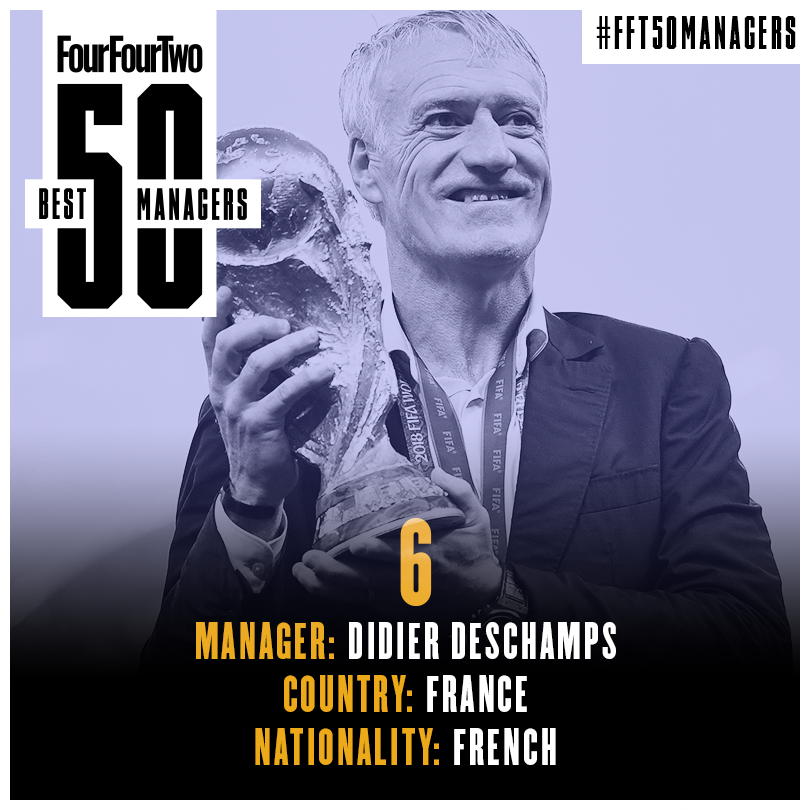
If living well is the best revenge, football’s equivalent is winning the World Cup. Paul Pogba discovered that this summer; so too did his manager.
Didier Deschamps, ‘The Water Carrier’ as a player, was criticised before and during Russia 2018 for his perceived preference for certain players (Blaise Matuidi), his conservative tactics (Blaise Matuidi on the wing) and France’s laboured group-stage performances.
Yet he had the last laugh. His squad was unbelievably talented – how many nations could leave Karim Benzema, Kingsley Coman, Adrien Rabiot, Alexandre Lacazette, Anthony Martial, Wissam Ben Yedder and Dimitri Payet at home? – but plenty of managers have failed with great resources. Deschamps took the water from French football’s bounteous spring and carried it to the top of the tallest mountain. – Huw Davies
5. Jurgen Klopp (Liverpool)
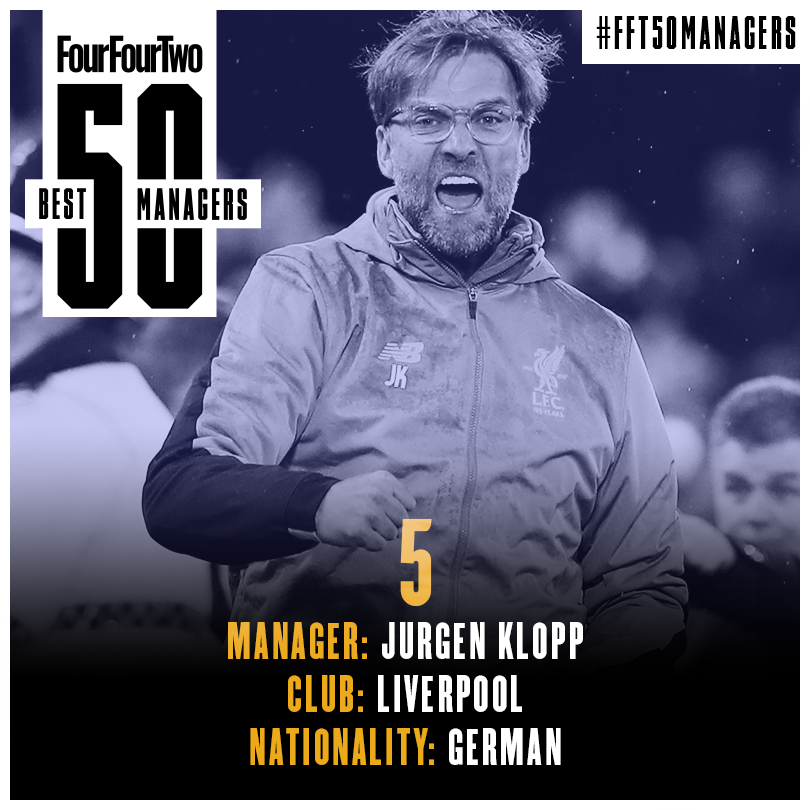
Forget the gurning smile and rock-star kitsch – Klopp has turned Liverpool into a force to be feared. Even Pep Guardiola, the arch footballing ideologue, changed his Manchester City team and tactics in early October to counter the Reds’ fierce front three.
Liverpool now exist in the image of their manager: a thrilling, attack-minded collection of players who believe in both entertainment and the positive influence that football can have on a city. The mess Klopp inherited is gone, replaced by a squad assembled with a plan, instead of an attempt to replace one world-class player with seven less talented ones.
Therein lies the difference between Klopp and predecessor Brendan Rodgers. Klopp has waited for the players he wanted – Virgil van Dijk, Alisson, Fabinho – instead of panicking and buying whoever might be available. Just imagine the German buying Mario Balotelli. Settle down at the back.
Yes, the trophy must come, probably this year, but Liverpool haven’t started a league season with as much hope for two decades. – Andrew Murray
4. Max Allegri (Juventus)
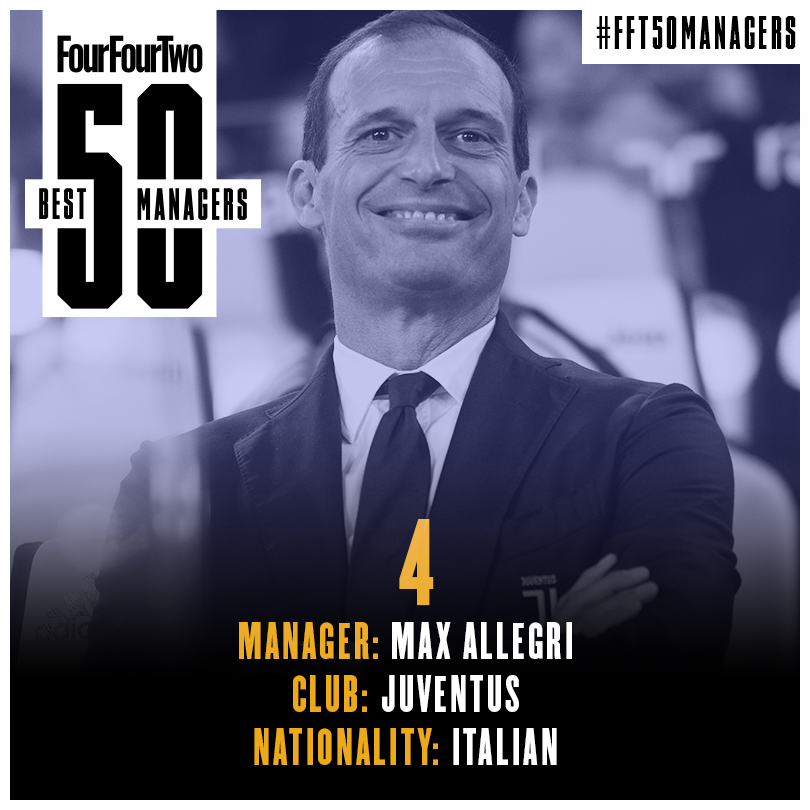
Another season, another league-and-cup double. That’s four in a row for Allegri’s Juve, who held off a brilliant Napoli in the process.
In 2017/18, he integrated new talents such as Douglas Costa and Federico Bernardeschi, and made tactical switches which altered the course of games – notably in the Old Lady’s Champions League last 16 victory over Tottenham at Wembley.
Yet they ultimately came up short in Europe once again, prompting the Bianconeri to splash out a club-record fee on Cristiano Ronaldo. Allegri must now end a 22-year wait for Champions League success, but you wouldn’t put it past CR7 and the brilliant coach doing just that. – Adam Digby
3. Diego Simeone (Atletico Madrid)
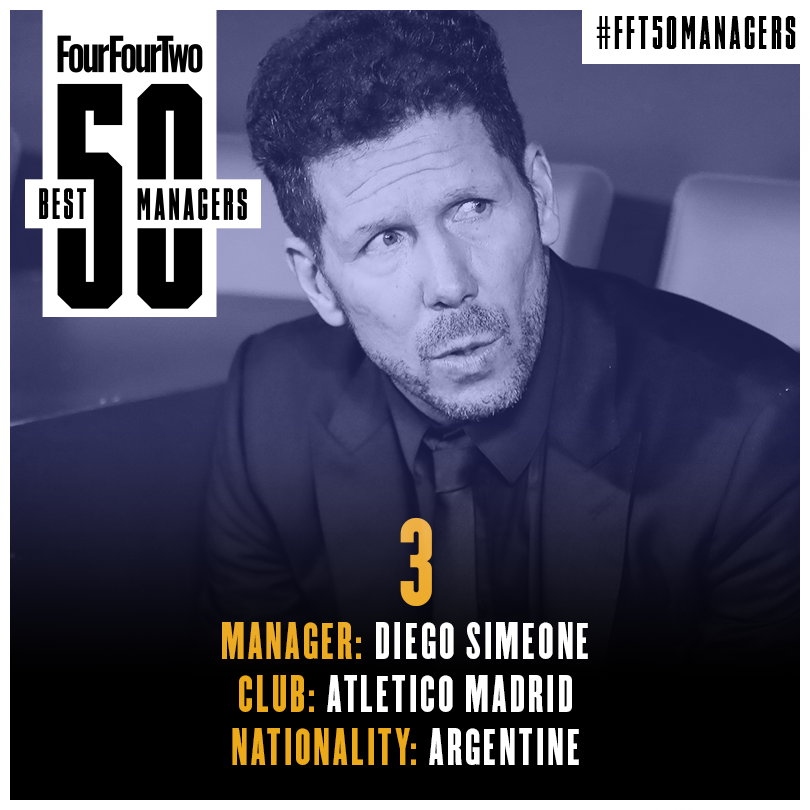
If Atletico Madrid were ever to ditch the Madrid coat of arms at the heart of their badge, then a picture of Simeone’s face, instead of a bear on its hind legs nuzzling up to a strawberry tree, would be a very good place to start.
It’s no exaggeration to say that los Colchoneros compete with European football’s heavyweights because of their firebrand manager. The club Simeone took over in December 2011 is unrecognisable to the one which not only punches above its weight, but which sits alongside Real Madrid and Barcelona as La Liga’s pound-for-pound champions.
When Atleti went back down to the middleweight ranks of the Europa League for the second half of last season, they steamrollered their erstwhile contemporaries. Simeone improves his players like few managers and makes his charges play for him, each one performing as if “holding a knife between his teeth” – as Cholo the player himself once described his own playing style.
How many other bosses could have kept Antoine Griezmann at the Metropolitano this season? Another La Liga could be his yet. – Andrew Murray
2. Zinedine Zidane (Unattached)
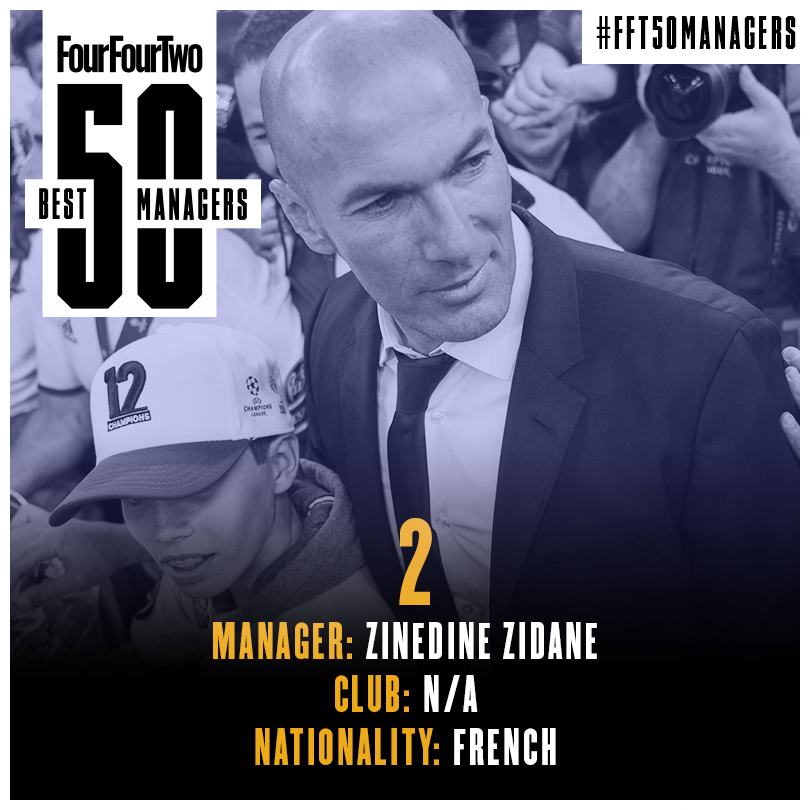
What do you mean he’s unemployed? Zidane is too busy enjoying a year-long sabbatical to care about football, especially its politics.
In two-and-a-half Bernabeu seasons, Zizou won three Champions Leagues out of three, one Liga, two UEFA Super Cups, two Club World Cups and one Supercopa de Espana. Then walked away.
“I’m not the best coach tactically, and I will always say that,” he said before this summer’s Champions League final victory against Liverpool. “And, well, I don't need to say that because you lot always say that anyway.”
No one saw the Frenchman’s resignation coming, let alone Blancos president Florentino Perez. The latest reports coming from Spain say Zidane left because Perez reversed a decision to sell Gareth Bale after the Welshman’s impact in the Champions League final. Feeling betrayed, Zidane informed his sporting father that he was off, six days after Kiev.
Whoever gets Zidane will have the best man-manager in the world. We hear a suite at the Lowry Hotel in central Manchester might be free fairly soon. – Andrew Murray
1. Pep Guardiola (Manchester City)
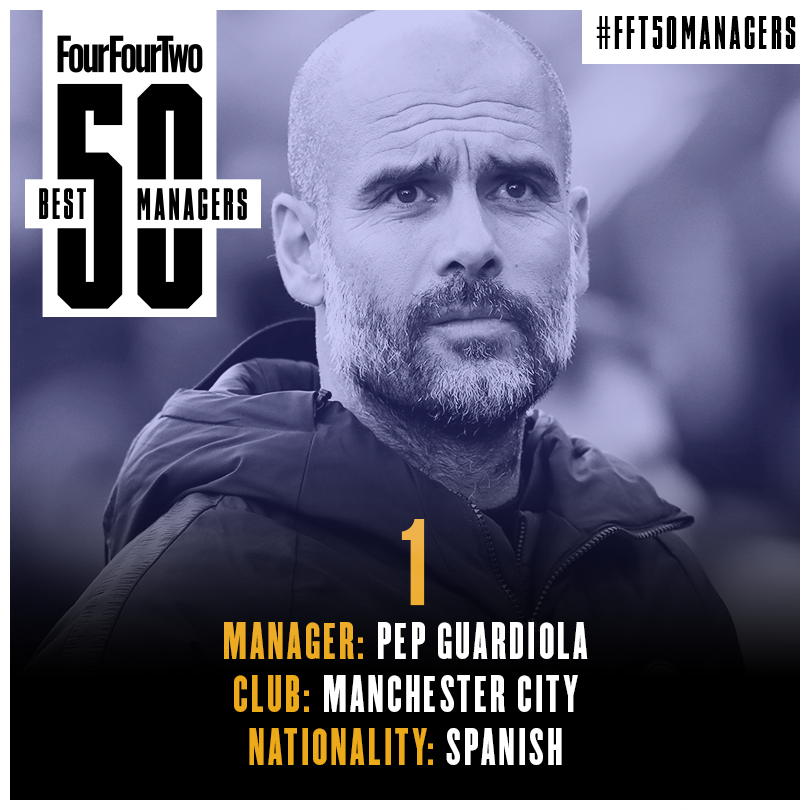
SEE ALSO Nobody is focusing on the most impressive thing about Manchester City right now – but they should be
Such was the quality of Manchester City’s procession to the 2018 title that even the naysayers must give Guardiola at least some credit. Premier League records fell like dominos: most points, earliest title win, most goals, best goal difference, biggest winning margin, most consecutive wins, most away wins, fewest minutes trailed. At times, his team was simply breathtaking.
The former Barcelona boss might have taken much inspiration from the great Marcelo Bielsa but he’s already on another plane, rebuilding – yes, rebuilding has been required – a dazzling winning team at a third club.
Doubters will persist until he steers Manchester City to a maiden Champions League title, but English supporters are starting to grasp what Bayern Munich fans did – when the football is this otherworldly, Europe isn’t the be-all and end-all. – Andy Brassell
Joe was the Deputy Editor at FourFourTwo until 2022, having risen through the FFT academy and been on the brand since 2013 in various capacities.
By weekend and frustrating midweek night he is a Leicester City fan, and in 2020 co-wrote the autobiography of former Foxes winger Matt Piper – subsequently listed for both the Telegraph and William Hill Sports Book of the Year awards.
